Description
Introduction to the Village
Jandi Village is located in the Hiranagar Tehsil of Kathua district in Jammu & Kashmir, India. It is situated about 4 km from the sub-district headquarter Hiranagar and 40 km from the district headquarter Kathua. The village covers an area of 370 hectares. Known for its rich cultural heritage and serene landscapes, Jandi is a blend of tradition and tranquility, offering a peaceful lifestyle amidst the beauty of Jammu & Kashmir.
Population
Jandi Village, in Hiranagar Tehsil of Kathua district, has a population of around 1,654 people. The community thrives on agriculture, with most residents engaged in farming and related activities. The village is known for its close-knit society, where families often live together in multi-generational homes. Jandi's population is a mix of various age groups, with a significant number of children and elderly residents. The people are culturally rich, celebrating traditional festivals with great enthusiasm.
Cultural Heritage
The cultural heritage of Village Jandi in Hiranagar, located in the Kathua district of Jammu and Kashmir, India, is shaped by the rich history, traditions, and practices of the region. The area has a distinctive blend of cultural influences, drawing from the broader Jammu and Kashmir region, as well as from the Punjabi and Dogra cultural traditions. While specific details about Jandi Hiranagar's cultural heritage may not be as widely documented as those of larger towns or cities, we can still explore some likely cultural elements based on the region’s history and the general cultural practices of the area.
Festivals and Celebrations: The villagers of Jandi Hiranagar celebrate a mix of Hindu, Muslim, and regional festivals. Major festivals include Diwali, Eid, Holi, Dussehra, and Baisakhi, which is particularly important in the Punjab region and celebrated with traditional fervor.
Religious Traditions: Like much of Jammu and Kashmir, the village likely holds strong religious traditions, particularly among Hindus, with practices such as puja (worship) in local temples. For Muslims, regular prayers (such as Namaz) and Islamic festivals (such as Eid ul-Fitr and Eid ul-Adha) are central to the community's way of life.
Weddings: Weddings in the village would follow traditional rituals with customs that include mehendi (henna ceremony), baraat (groom's procession), and sangeet (a music and dance celebration). The customs could vary depending on whether the family belongs to a Hindu or Muslim community.
Historical Places
Jandi Fort : The Jandi Fort, located in Village Jandi, is a historical site with significant importance in the region. Though not as widely known as other forts in Jammu and Kashmir, it reflects the architectural and military strategies of the period it was built. Jandi celebrates a variety of festivals that reflect its cultural and religious diversity. These festivals often include traditional music, dance, and communal gatherings that reinforce community bonds. Forts in this region often feature robust walls, watchtowers, and bastions. The design usually reflects a blend of military and local architectural styles, adapted to the terrain and climate.Many such forts are now in ruins, but they still provide valuable insights into the region’s history and architectural practices. Archaeological and restoration efforts might be underway to preserve what remains.
Jandi Bagh : Jandi Bagh is likely a historical garden that may have been developed during the Mughal era or under local rulers as a place for leisure and relaxation.Historical gardens often include terraced lawns, water features like fountains or pools, and ornamental plants. Gardens like Jandi Bagh often played a role in social and cultural activities. They could serve as venues for gatherings, celebrations, and as a space for relaxation and enjoyment.
Healthcare Facilities
The healthcare facilities in Jandi Hiranagar, a village in Hiranagar tehsil of Kathua district, Jammu and Kashmir, are likely to reflect the general healthcare infrastructure found in rural areas of the region. While rural areas often face challenges related to healthcare access, there are efforts to provide essential medical services to remote villages like Jandi Hiranagar. Here's an overview of the typical healthcare facilities and services that might be available in the village or nearby areas:
1. Primary Healthcare Centers (PHCs):
Role of PHCs: The Primary Healthcare Center (PHC) is the backbone of healthcare delivery in rural areas like Jandi Hiranagar. PHCs are government-run facilities that provide basic medical services, including:
General medical consultation
Immunization programs
Maternal and child healthcare
Treatment of common ailments (e.g., fever, respiratory infections, skin diseases)
Basic emergency care
Health education and awareness programs
Availability of Doctors and Nurses: A doctor (typically a medical officer) is usually stationed at the PHC, along with nurses and midwives who help with deliveries, prenatal care, and other health services.
Location: In the case of Jandi Hiranagar, the nearest PHC is located within the village or in a nearby town or sub-center. The Hiranagar Block likely has a PHC, and patients may travel to this facility for more specialized care.
2. Sub-Centers:
Role of Sub-Centers: These are smaller health posts located in rural areas to provide primary health services. They are usually staffed with auxiliary nurse midwives (ANMs) and health workers who offer basic services, such as immunizations, antenatal checkups, and health education.
Access to Medications: Sub-centers often have limited supplies of basic medicines for common health issues, but more complex or serious conditions require referral to PHCs or higher facilities.
3. Community Health Workers:
In rural areas like Jandi Hiranagar, community health workers or Anganwadi workers may play a key role in promoting public health. These workers assist with:
Vaccination campaigns
Nutritional education
Maternal and child health
Disease prevention programs (e.g., malaria, tuberculosis, and diarrhea).
Educational Facilities
In Jandi Village, Hiranagar, the availability of educational programs for children reflects the resources and infrastructure of rural settings. Anganwadis are government-sponsored centers that provide early childhood education, nutrition, and health services to young children. Villages have government-run middle school that provide basic education from early years through to middle school. These schools focus on core subjects like language, mathematics, science, and social studies , but for adults there is no educational facility available within the village. They have to travel to Hiranagar or Kathua for higher education. Government higher secondary and college is available in Hiranagar which is 3-4 kms from the village.
Language Spoken
In Jandi , located in the Kathua district of Jammu and Kashmir , the primary language spoken by the local population is :
Dogri: Dogri is the primary language spoken in most parts of Jammu, including villages like Jandi. It is a regional language with a rich literary history and is used for everyday communication, in homes, and in local markets.
Hindi : Hindi, the official national language of India, is widely understood and used in formal settings, government offices, and media. In some cases, it may be used in schools for instruction, although Dogri is the languages more commonly spoken at home and in the community.
Employment Opportunities
In Jandi Hiranagar and other rural areas in Kathua district, Jammu and Kashmir, employment opportunities are influenced by the region's socio-economic structure, availability of resources, and local industries. Like many rural villages in India, agriculture is the mainstay of the local economy, but there are also other sources of income and potential employment avenues. Here's an overview of the key employment opportunities in Jandi Hiranagar and its surrounding areas:
1. Agriculture and Allied Activities
Agricultural Employment:
Farming is the primary occupation for many people in Jandi Hiranagar. The region's fertile soil and irrigation facilities (from rivers like the Tawi) support the cultivation of crops such as rice, wheat, barley, maize, and vegetables. A significant number of people in the village would be employed as farmers, labourers, or in the management of agricultural land.
Animal Husbandry: Many households also engage in livestock farming, such as rearing cattle, goats, and poultry. Dairy farming is a common occupation in rural areas, providing milk and milk products, which are important for both household consumption and commercial purposes.
Horiculture :
The region also has potential for horticultural activities such as fruit farming. Apples, grapes, pomegranate, and stone fruits like peaches and plums are grown in the broader Jammu region, and villagers might participate in these activities, either through cultivation or related industries such as fruit processing.
2. Government Jobs and Public Services
Employment in Government Sectors:
The government provides various employment opportunities through state and central government programs. People from rural areas can apply for civil services exams, teaching jobs, and clerical positions in government offices.
Government initiatives, such as the National Rural Employment Guarantee Scheme (MGNREGA), provide employment in public works, including road construction, irrigation development, and other rural infrastructure projects.
Health and Education Services: Teachers, health workers, and nurses often find employment in rural healthcare centers (PHCs, sub-centers) and schools, which are crucial for the region's development.
3. Small-Scale and Cottage Industries
Handicrafts and Artisanal Work:
Craftsmanship is an important part of rural culture in Jammu and Kashmir. Villagers in Jandi Hiranagar may engage in traditional crafts such as wood carving, embroidery, wool weaving, and pottery. These crafts often have local and export markets, particularly Kashmiri carpets and Pashmina shawls.
Phoolkari Embroidery and other local handwork could provide opportunities for women and other artisans.
Handloom and Weaving:
The region has a tradition of weaving woolen products and textiles, which are significant for both local consumption and trade. Wool processing and weaving may be part of the livelihood for some families.
4. Trade and Retail
Local Businesses:
People in Jandi Hiranagar may run small retail businesses, such as grocery shops, general stores, cloth shops, or hardware stores. These provide essential goods to local communities and are an important source of employment.
Villagers may also engage in transportation services, especially for local trade and produce, involving small commercial vehicles for the transport of goods to larger towns and markets.
Market Vendors:
The village may have weekly markets or fairs where villagers sell agricultural produce, handicrafts, and other local goods. These markets provide employment for vendors and traders.
Famous Dishes
The famous dishes are dal , rajma , ambal , mithe chawal.
Rajma is a popular North Indian dish made with kidney beans cooked in a spiced tomato gravy. It's often enjoyed with rice (known as "rajma chawal") or with Indian breads like roti or naan. The dish is known for its rich, hearty flavors and is a staple in many Indian households.
Dal Chawal is a staple dish in many parts of India, including Jammu and Kashmir. It consists of dal (lentils) cooked with spices and served with chawal (rice). The lentils are often seasoned with ingredients like cumin, turmeric, and garlic, making it both flavorful and nutritious. It's a simple, comforting meal that is widely enjoyed for its balance of taste and ease of preparation.
Ambal is a traditional dish from the Jammu and Kashmir region, often enjoyed in rural areas. It is a tangy and spicy preparation. The main ingredient is pumpkin and spices like turmeric, dried mango powder called amchar or tamarind, which imparts a distinctive sour flavor to the dish.
Mithe Chawal (sweet rice) is a popular dish in various regions of India, including Jammu and Kashmir. It’s made by cooking rice with sugar, ghee, and aromatic spices like cardamom. Sometimes, it also includes dried fruits such as raisins, cashews, and almonds for added texture and flavor. The dish is often enjoyed as a dessert or as part of festive meals and special occasions. Its sweet and aromatic flavor makes it a delightful treat.
Transportation Facilities
Jandi is a small village located in the Hiranagar tehsil of Kathua district in the Jammu region of Jammu & Kashmir, India. Since it's a rural area, transportation facilities may not be as developed or as frequent as in urban centers, but there are still several transportation options available to and from the region.
Transportation Facilities in Jandi, Hiranagar:
Buses: Local buses and government-run buses connect Jandi with nearby towns and cities, including Hiranagar and Kathua. The Jammu and Kashmir State Road Transport Corporation (JKSRTC) operates buses to and from various nearby locations.
Private Vehicles and Taxis: For more convenience, private taxis, auto-rickshaws, and shared cabs are commonly used for shorter distances within the region.
Main Roads: Jandi is connected to Hiranagar, which is a more prominent town, and from there, people can travel to other major cities like Kathua or Jammu.
Rail Transport: The nearest railway station to Jandi is in Hiranagar. The Hiranagar Railway Station serves as a key point for train travel to nearby towns and cities. Trains from here can connect to Jammu, Kathua, and beyond.
Kathua Railway Station: A larger railway station located about 15 km from Jandi, which offers broader connectivity, including trains to major cities like Delhi, Amritsar, and other parts of the region.
Local Connectivity: The area also has a network of smaller roads and paths that connect villages and towns, with cycles, motorcycles, and other personal vehicles being a common mode of transport for locals.
Flora and Fauna
In Jandi Village, Hiranagar, which is located in the Jammu region of India, the local flora and fauna reflect the region's semi-arid climate and the diverse ecosystems of northern India.
Kikar (Acacia nilotica): A hardy, drought-resistant tree commonly found in the region, providing shade and useful for local crafts.
Neem (Azadirachta indica): Known for its medicinal properties and used in traditional medicine, as well as for its shade and pest-repellent qualities.
Pipal (Ficus religiosa): Sacred tree often found near temples and used in religious and cultural practices.Wheat and Rice: Commonly grown staple crops in the region, benefiting from the local agricultural practices.
Mustard and Pulses: Other important crops that are grown in the area, contributing to local agriculture and cuisine.
Butterflies: Various species of butterflies add to the biodiversity, including common ones like the Common Tiger (Danaus genutia).
Beetles and Spiders: Various species adapted to the semi-arid environment, contributing to the ecosystem’s health.
Photos
Videos
Location Map
Contact Information
| Phone Number |
9596859285 |
| Website | https://jkpanchayat.jk.gov.in/panchayatdataview.php?panchayat=Jandi&block=Hiranagar |
Reviews (2)


The content written is sufficient and the pictures provided are good.


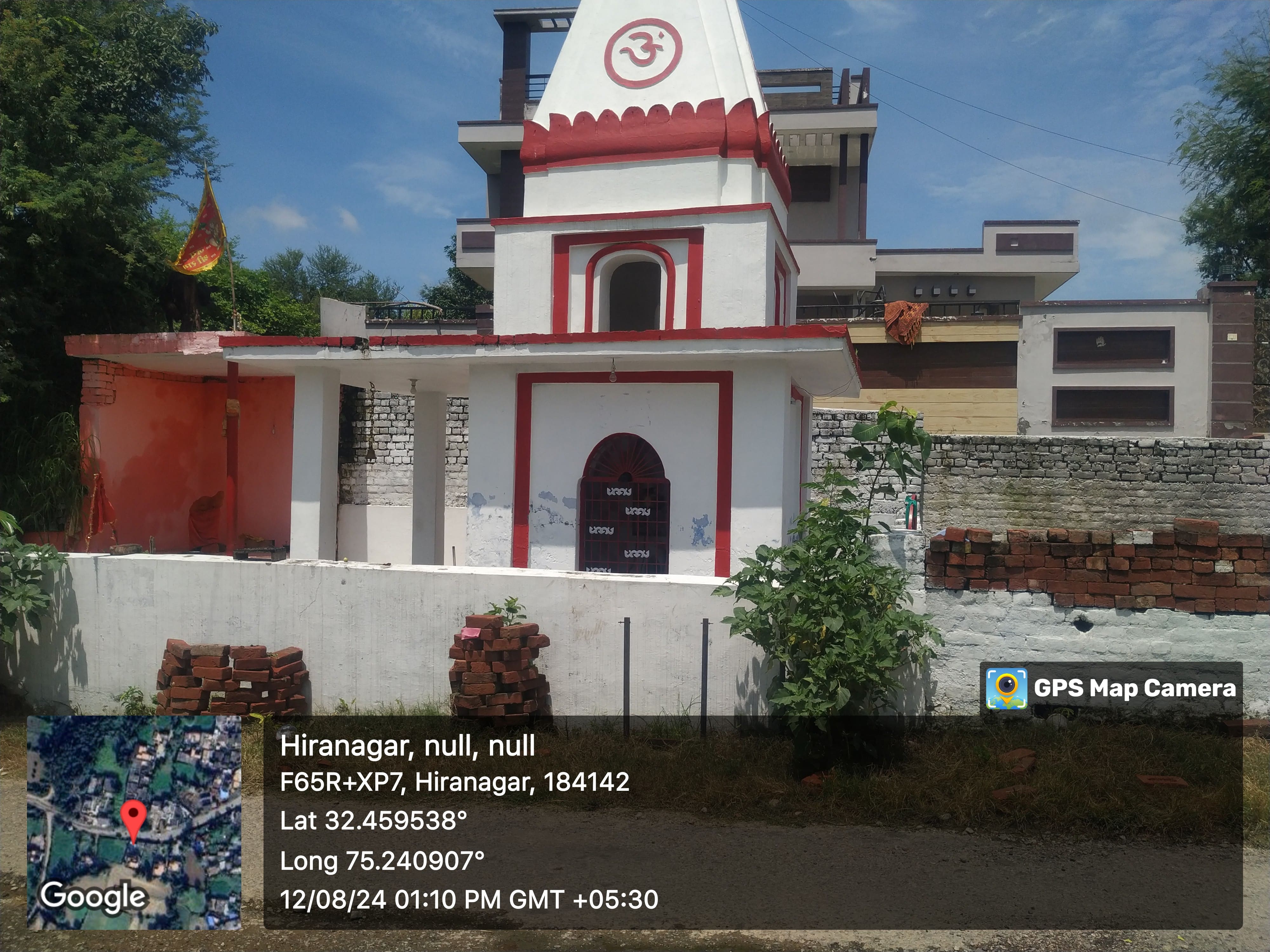
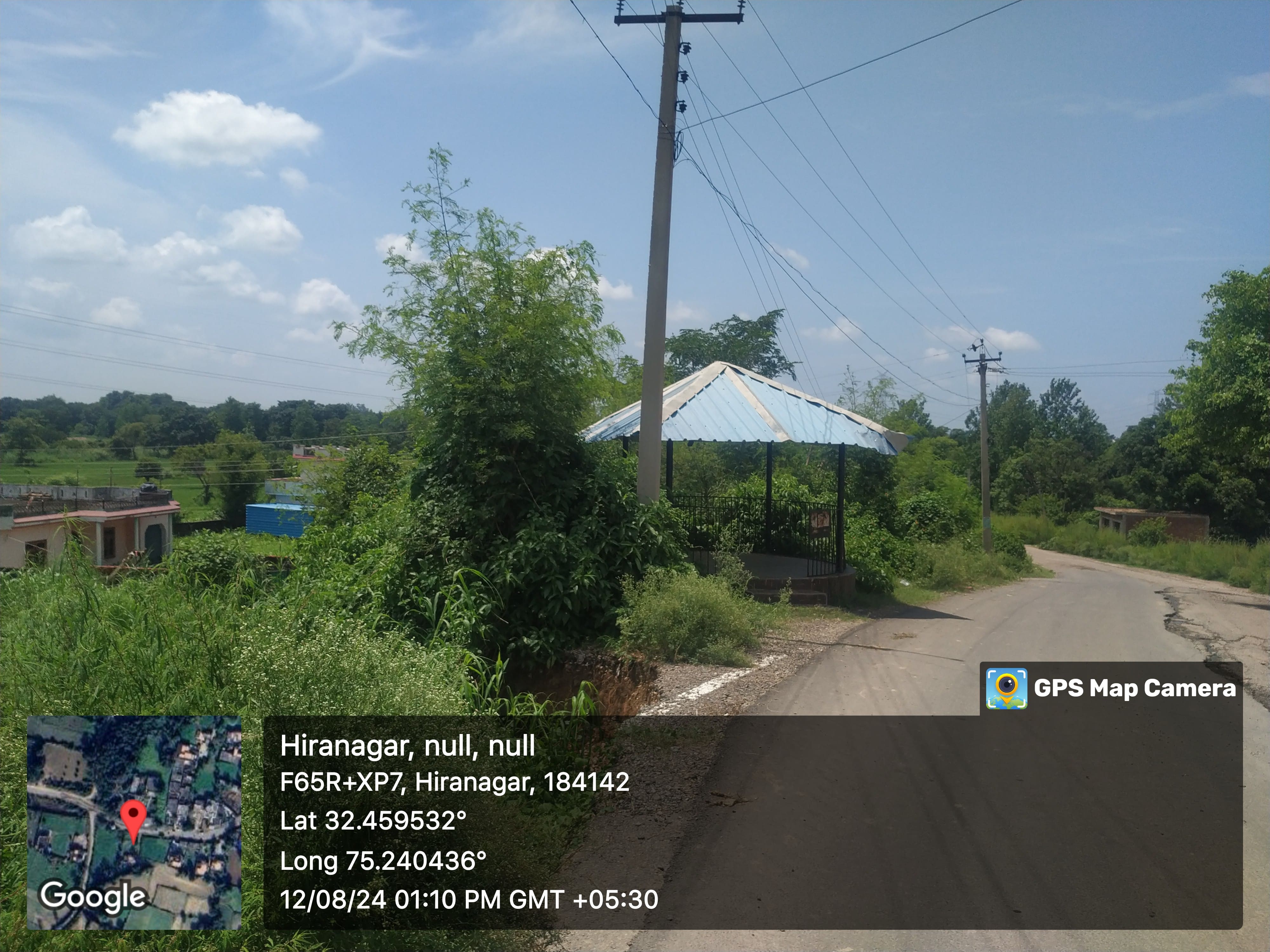
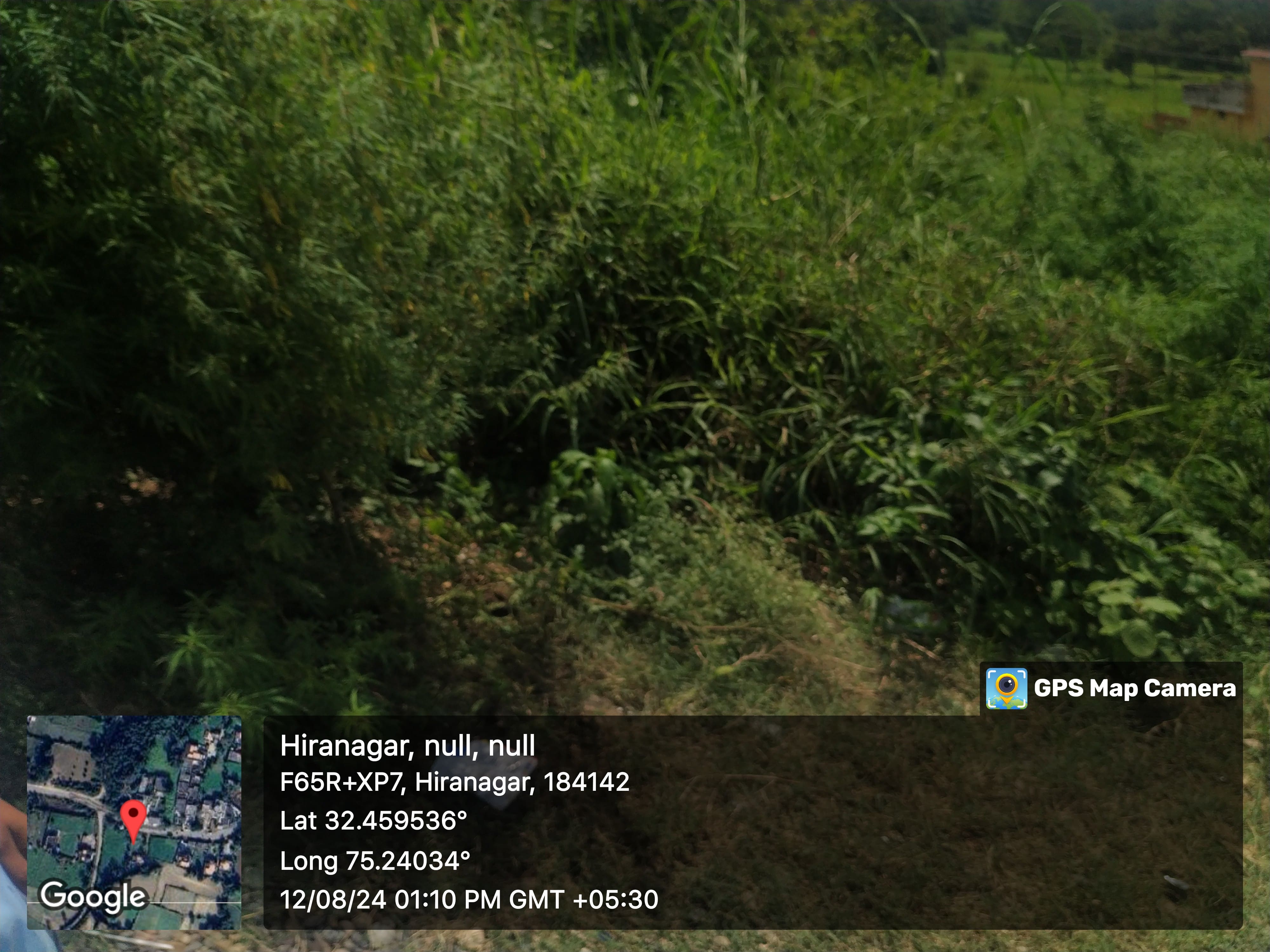
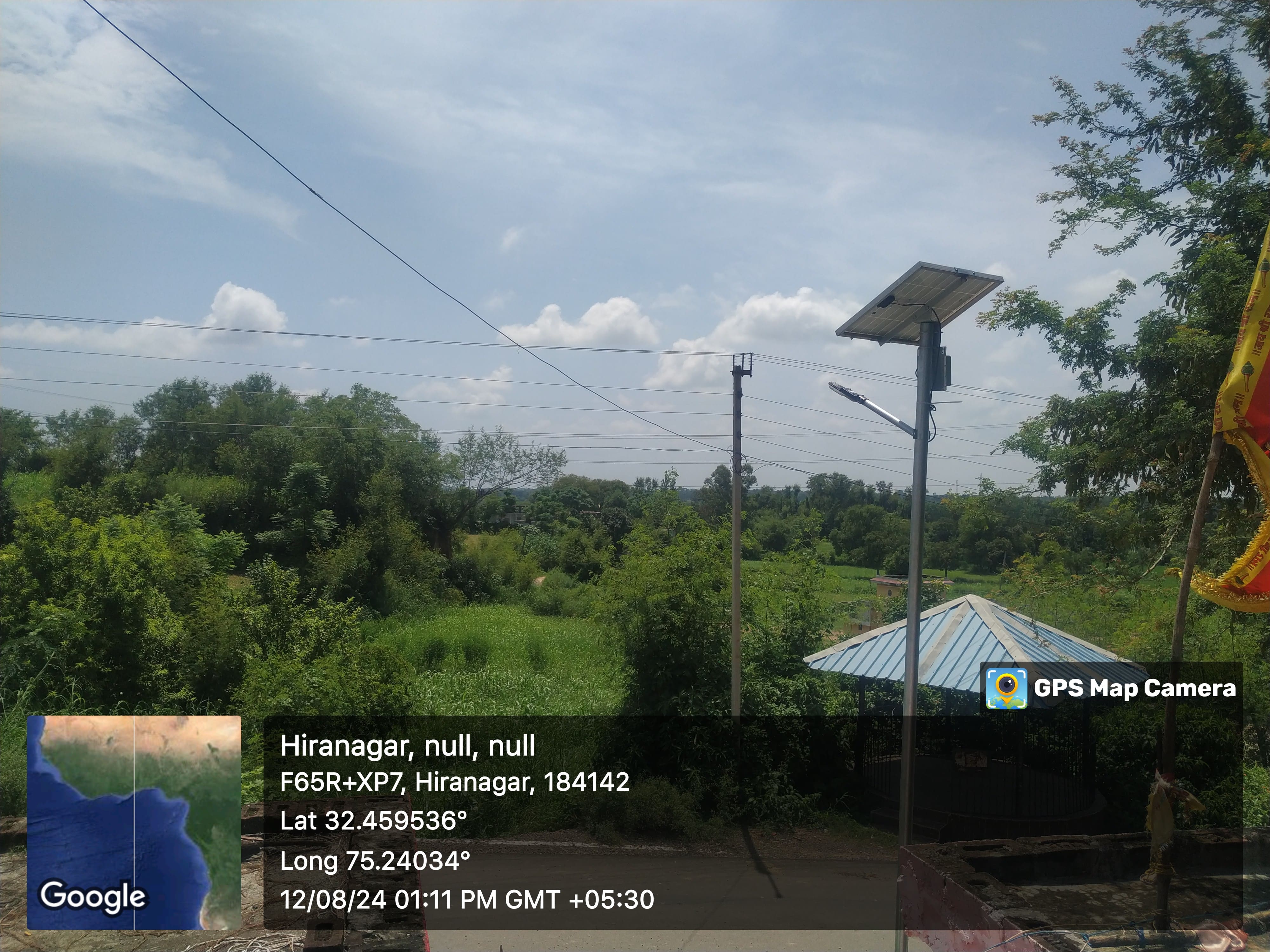
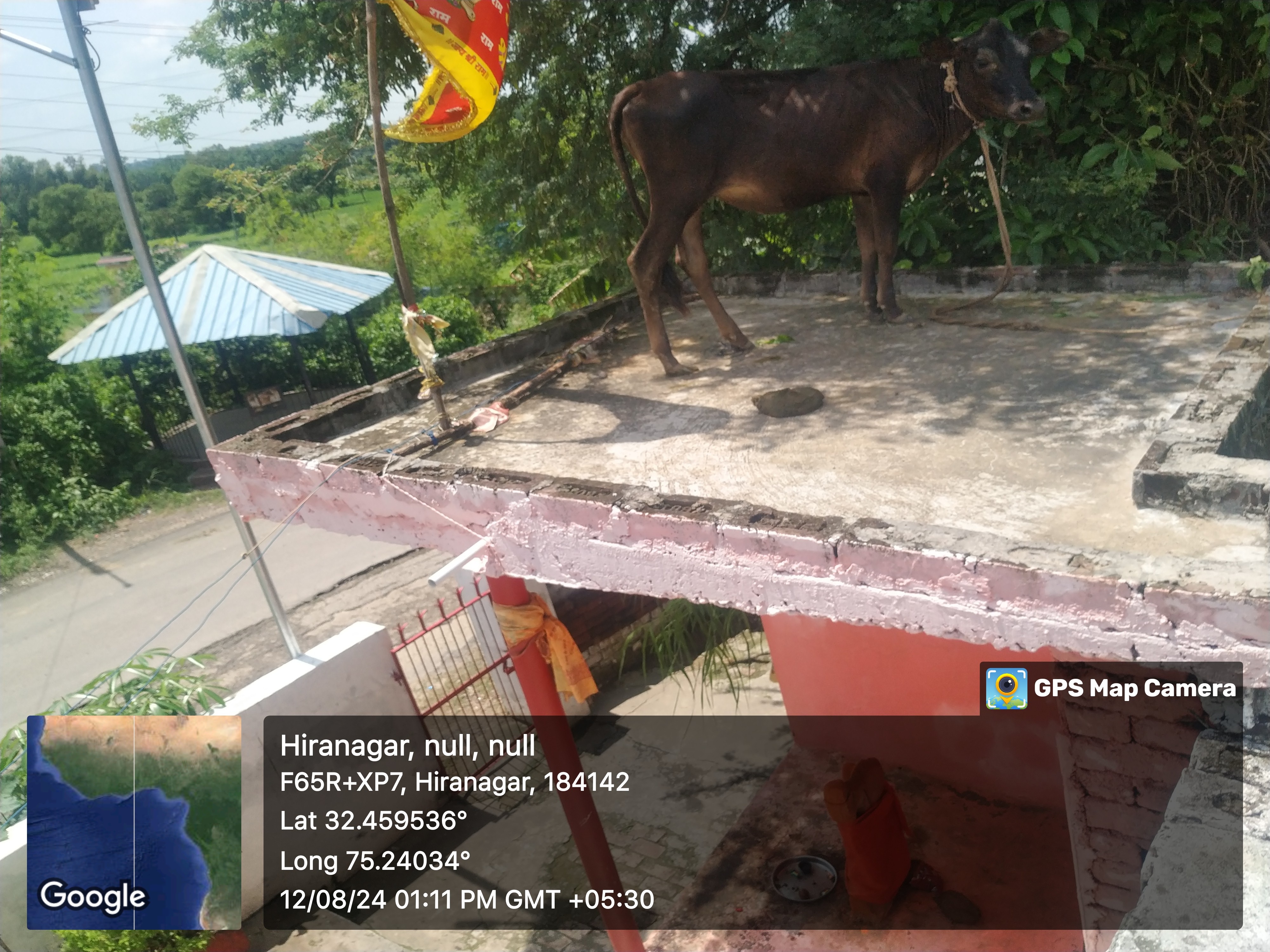
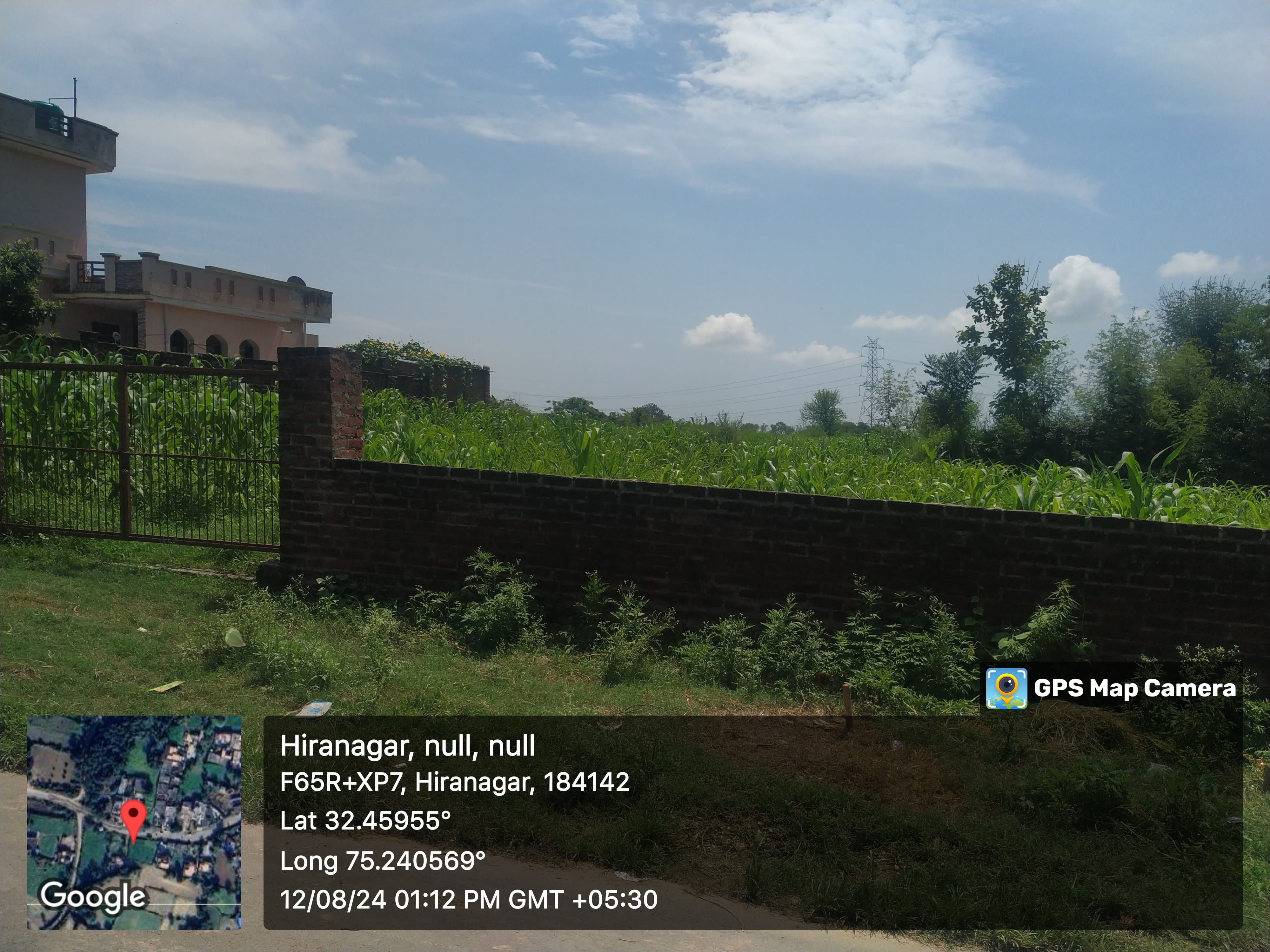
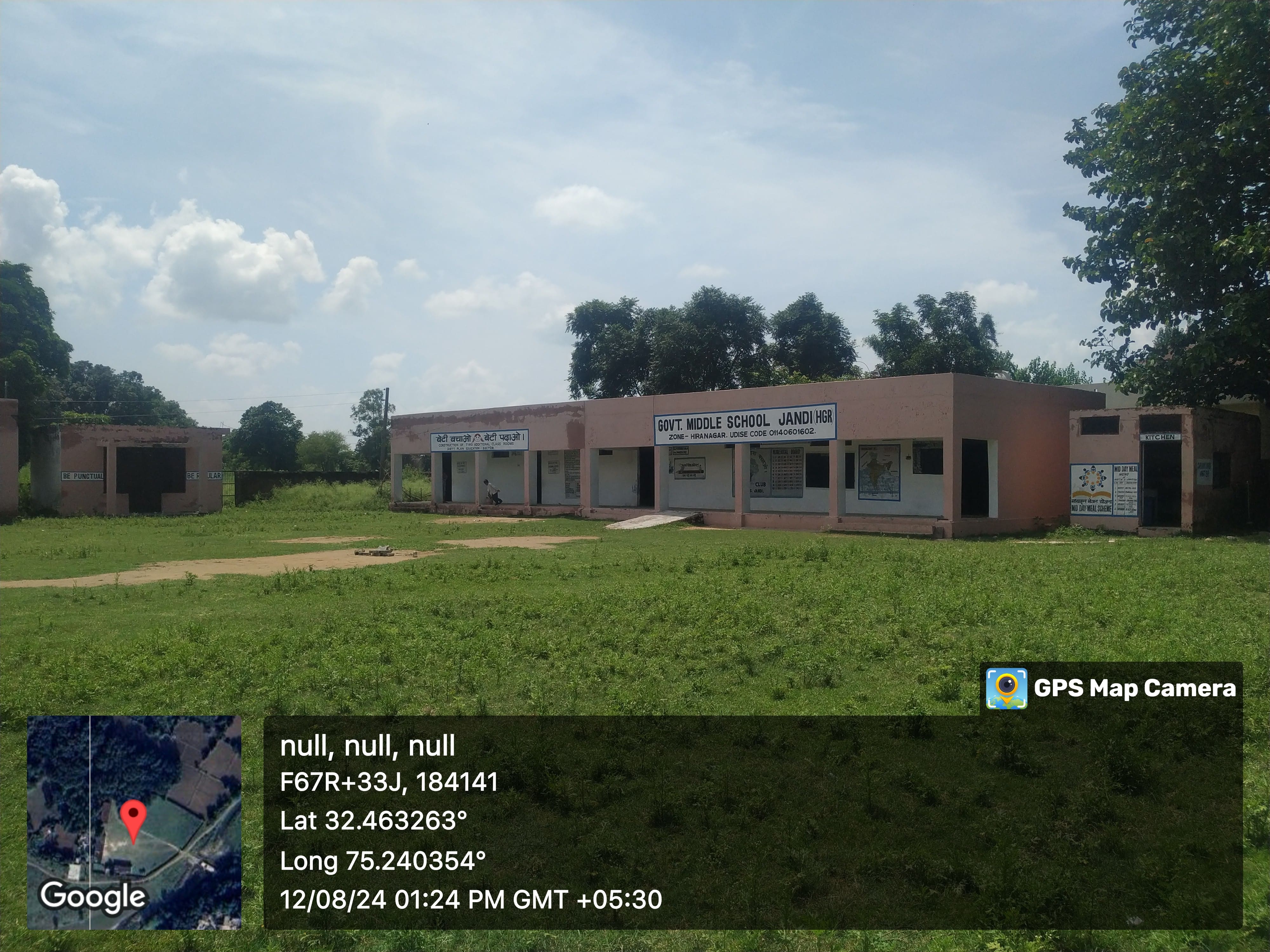

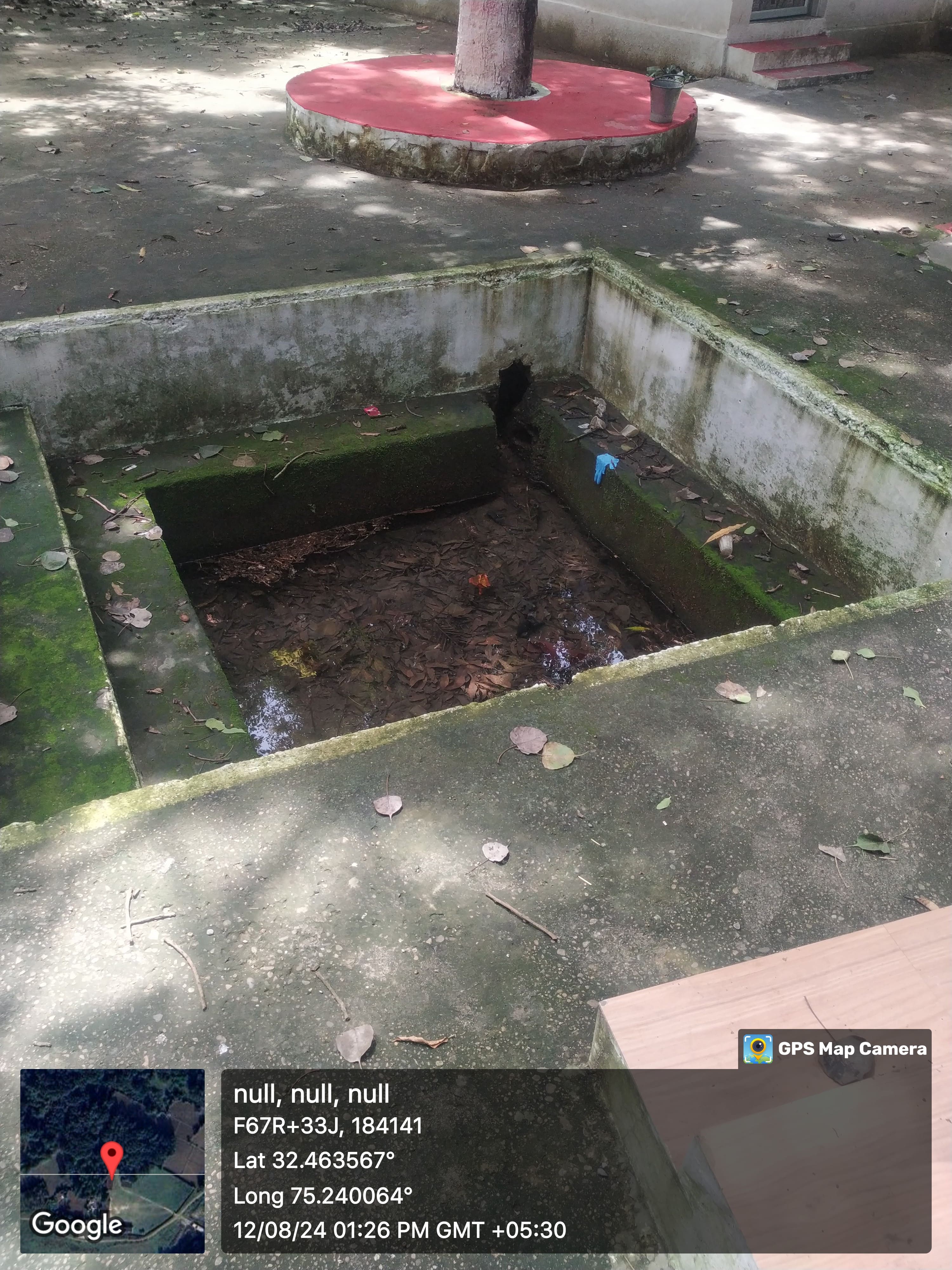
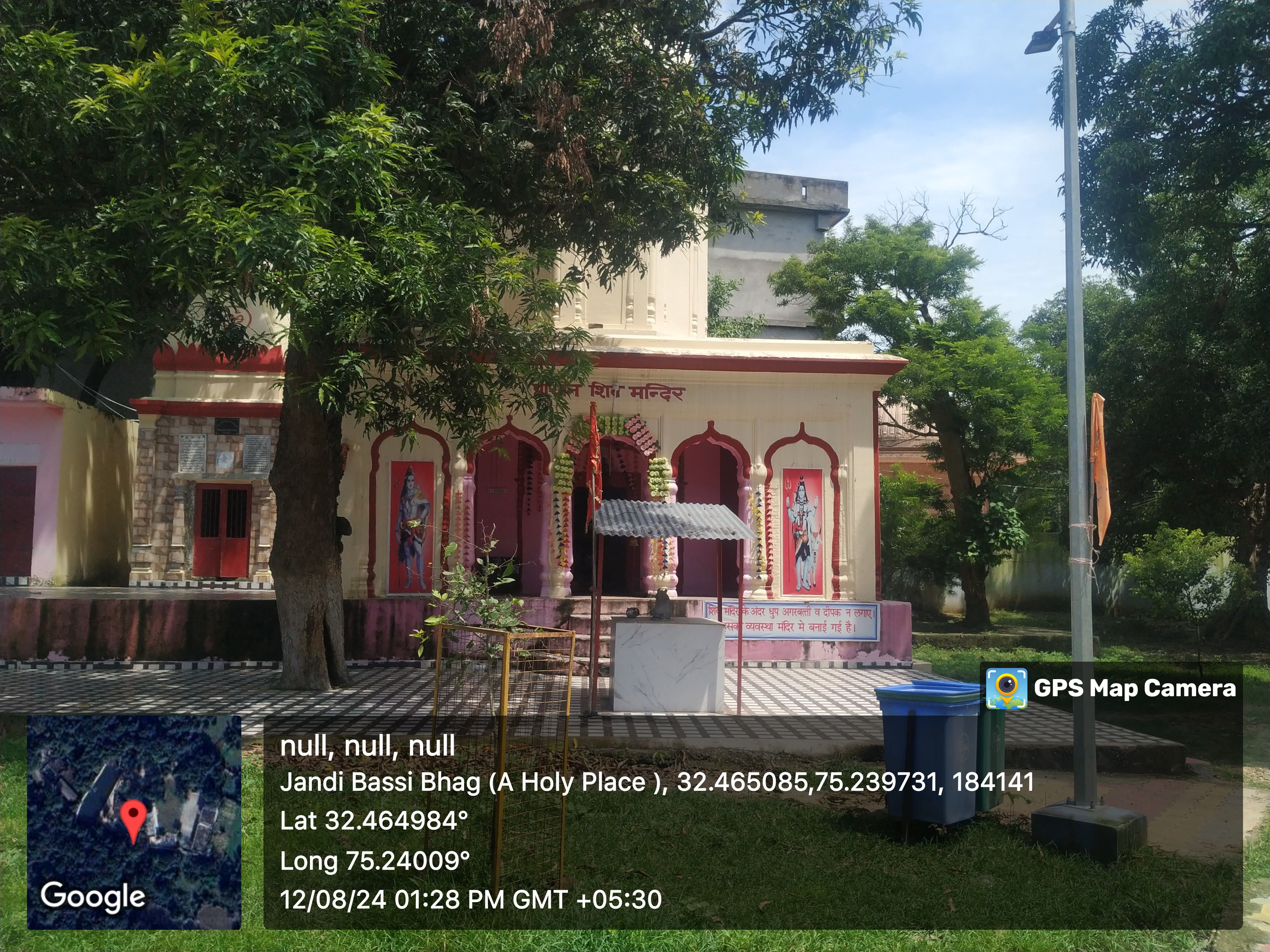

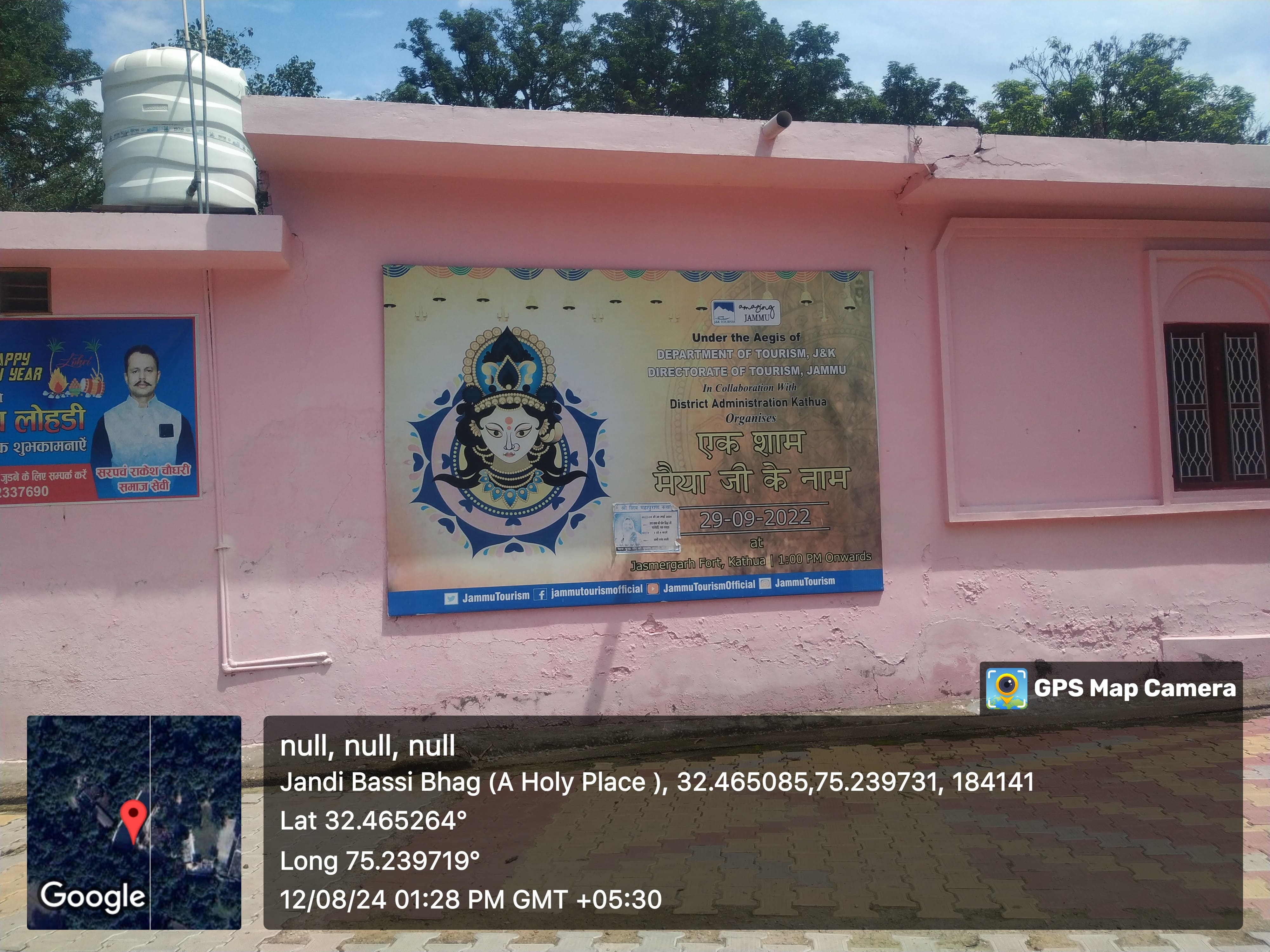
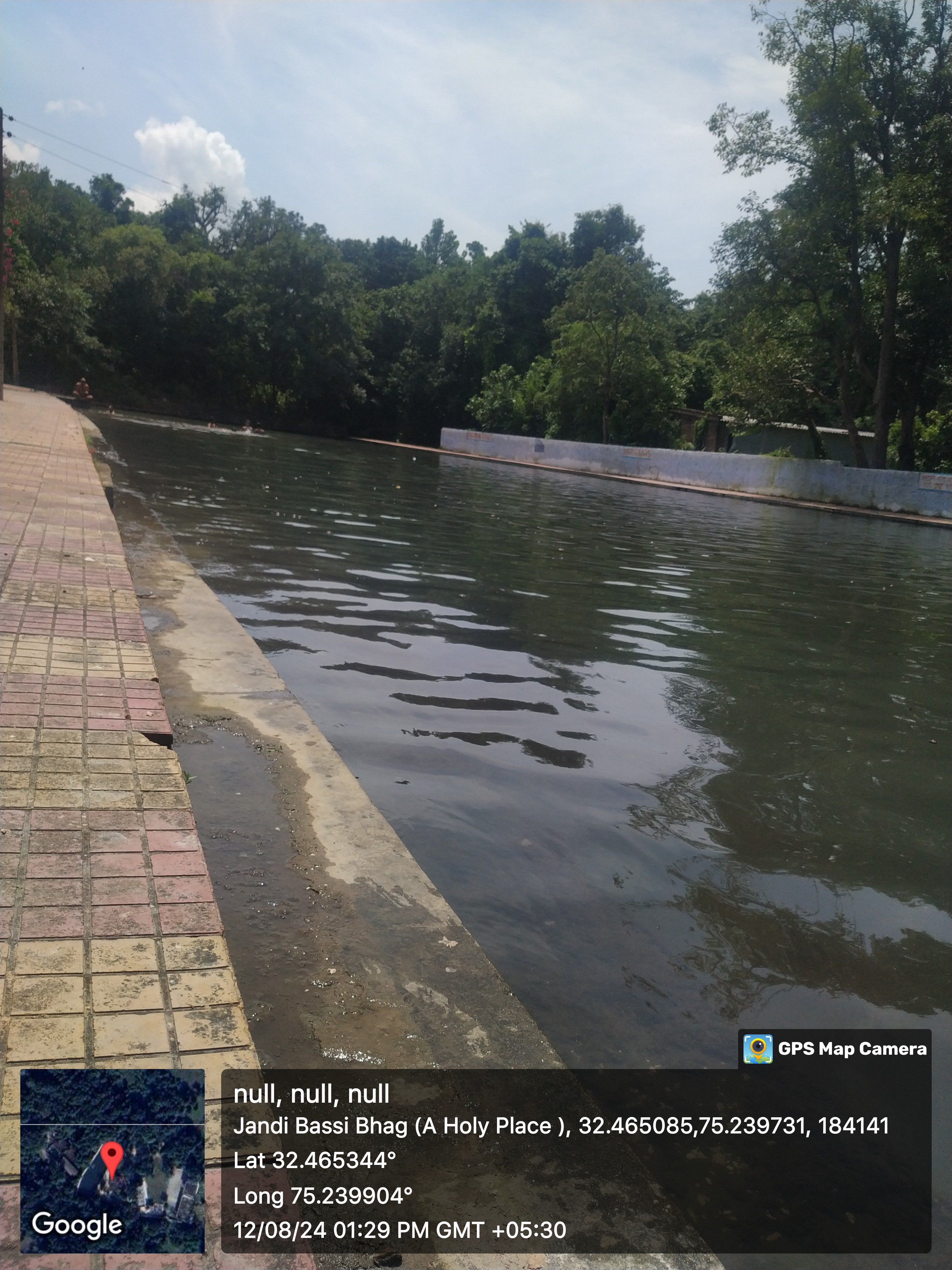
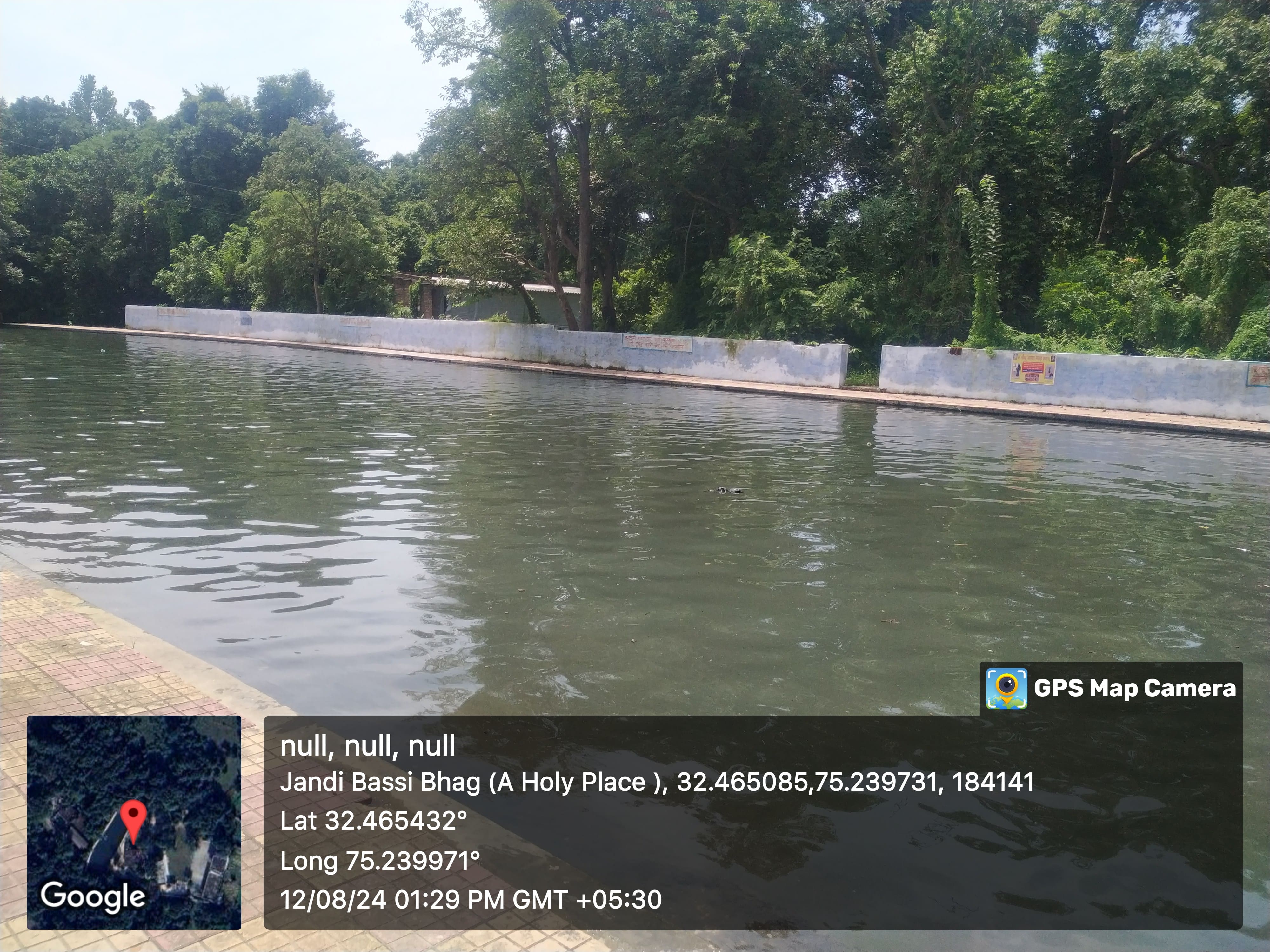

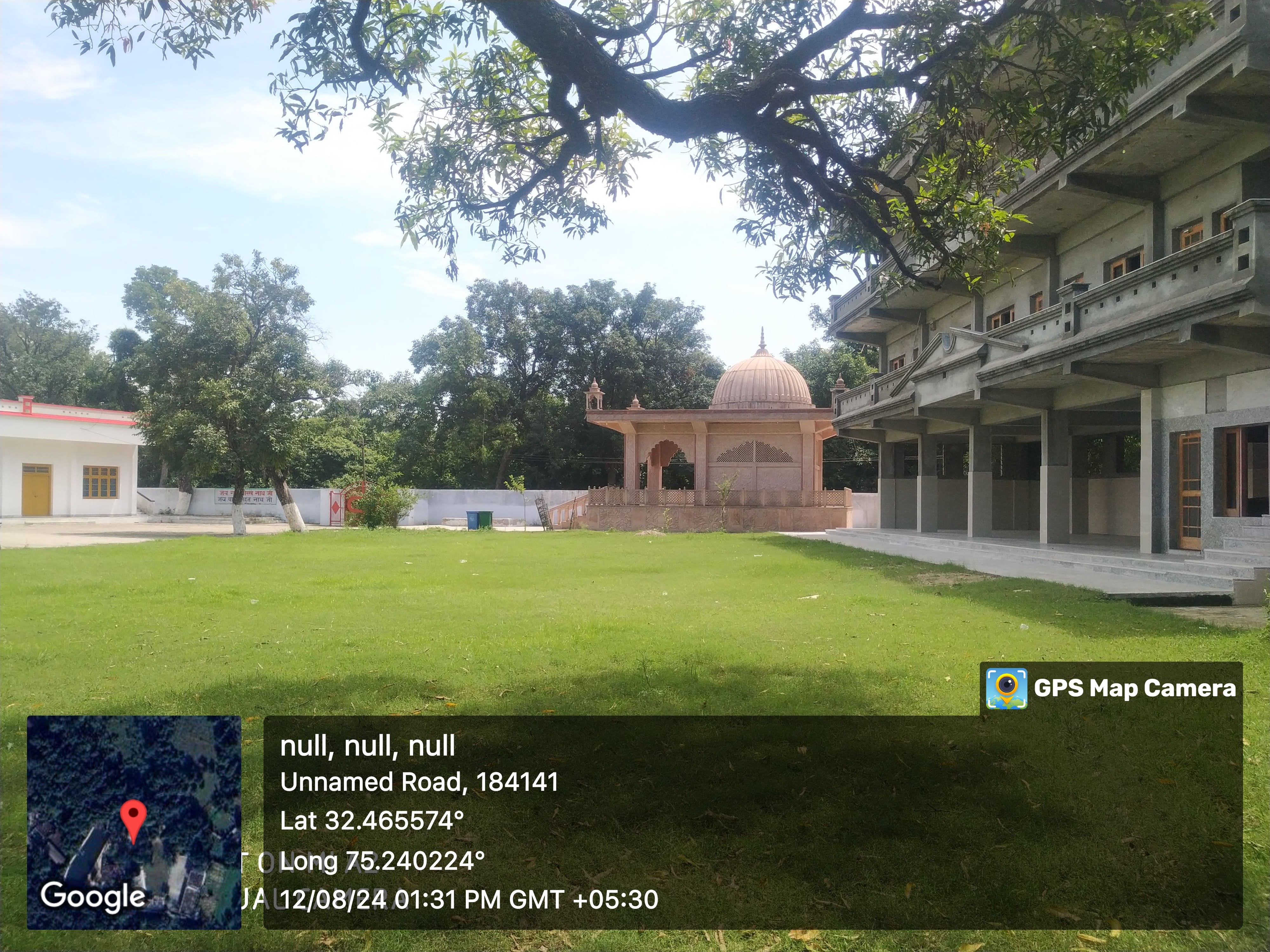
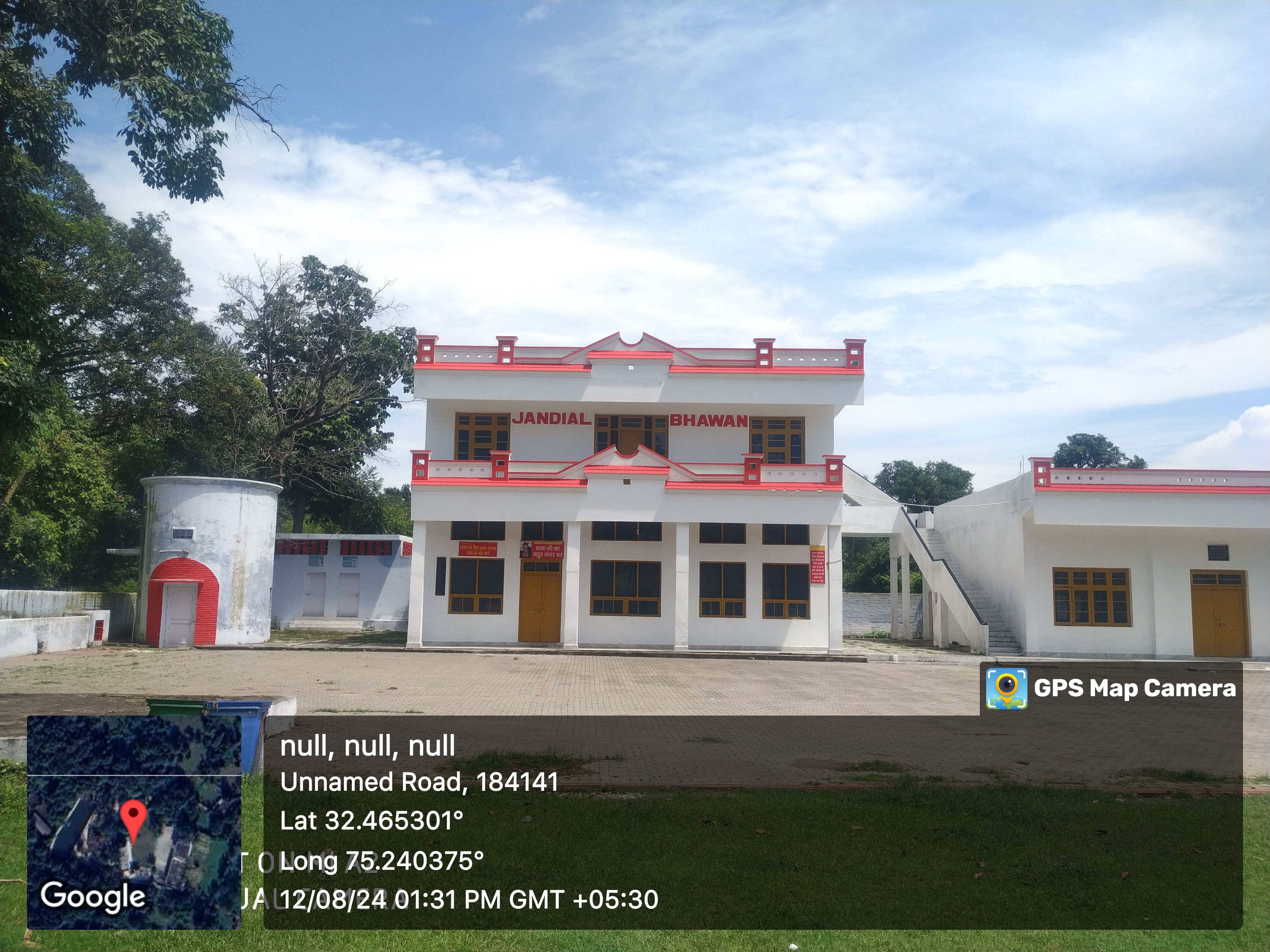
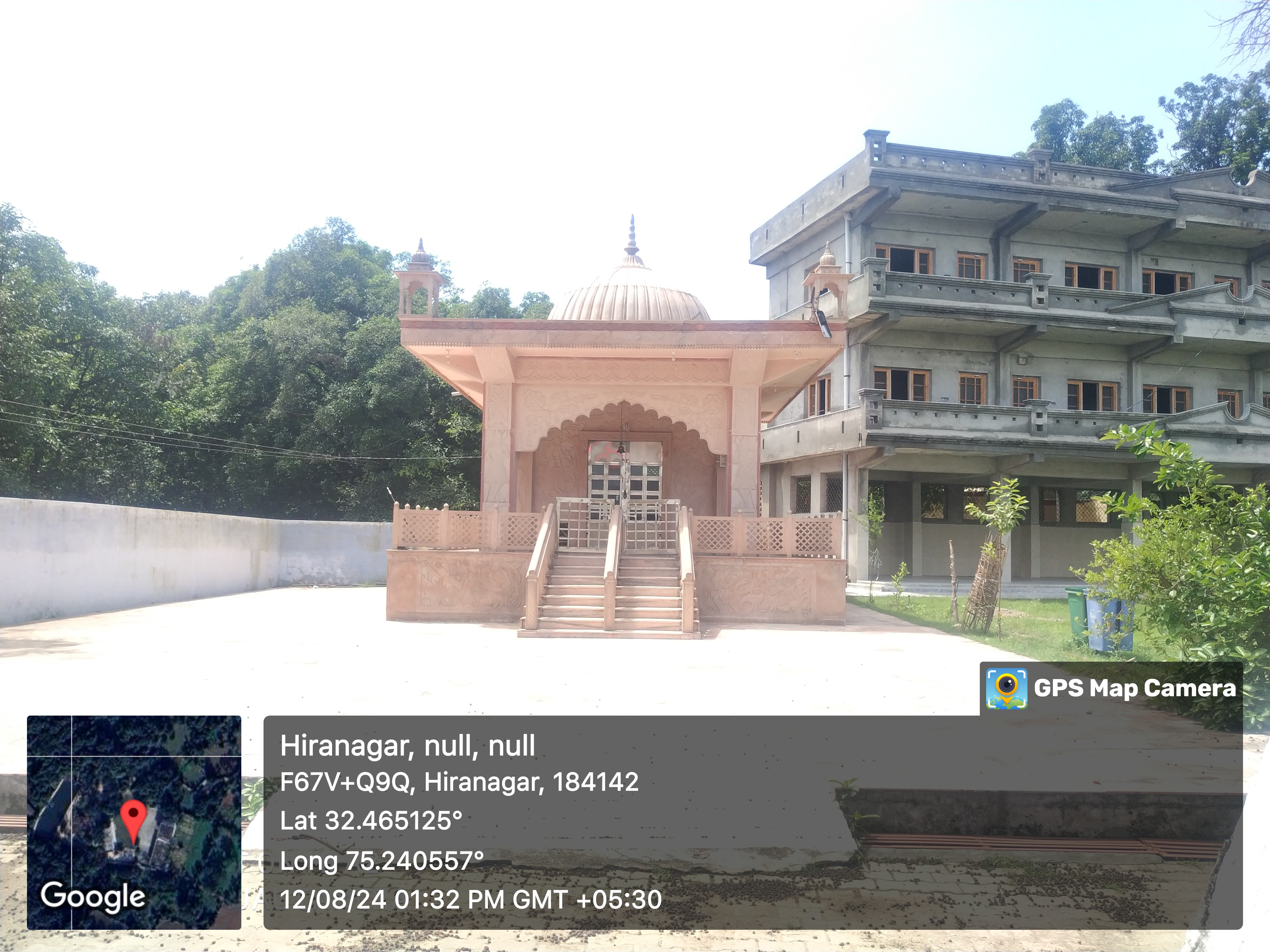
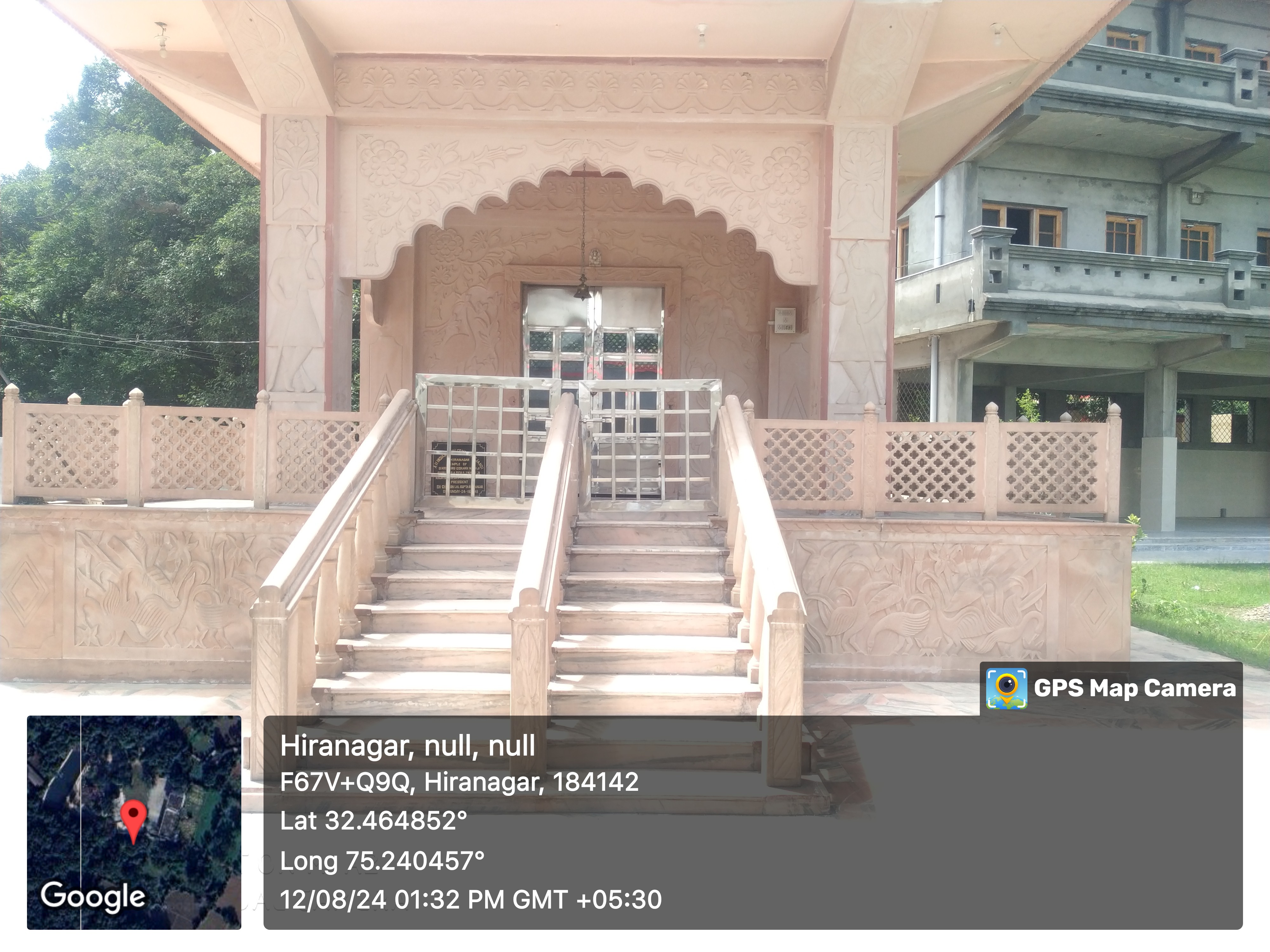
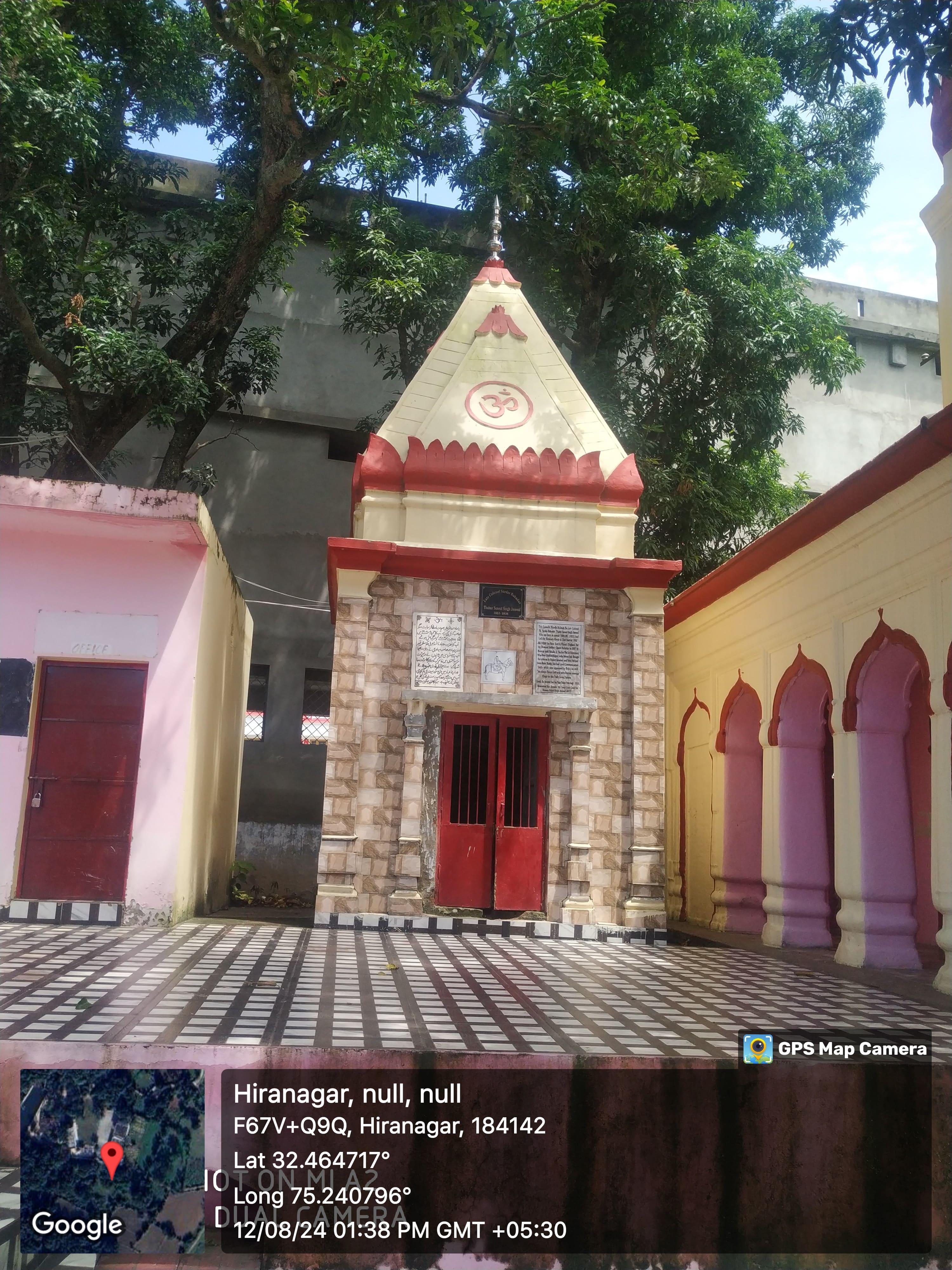

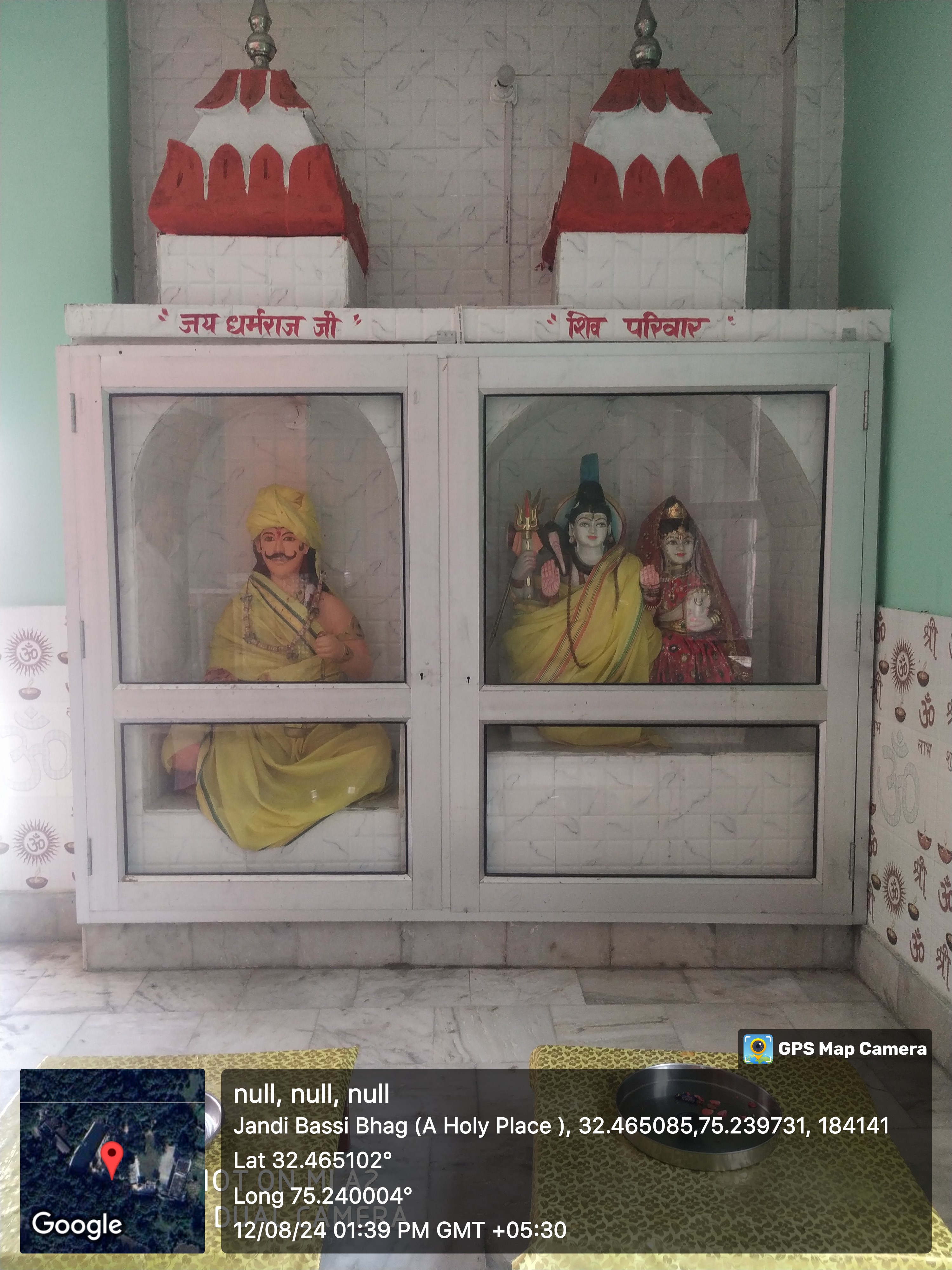
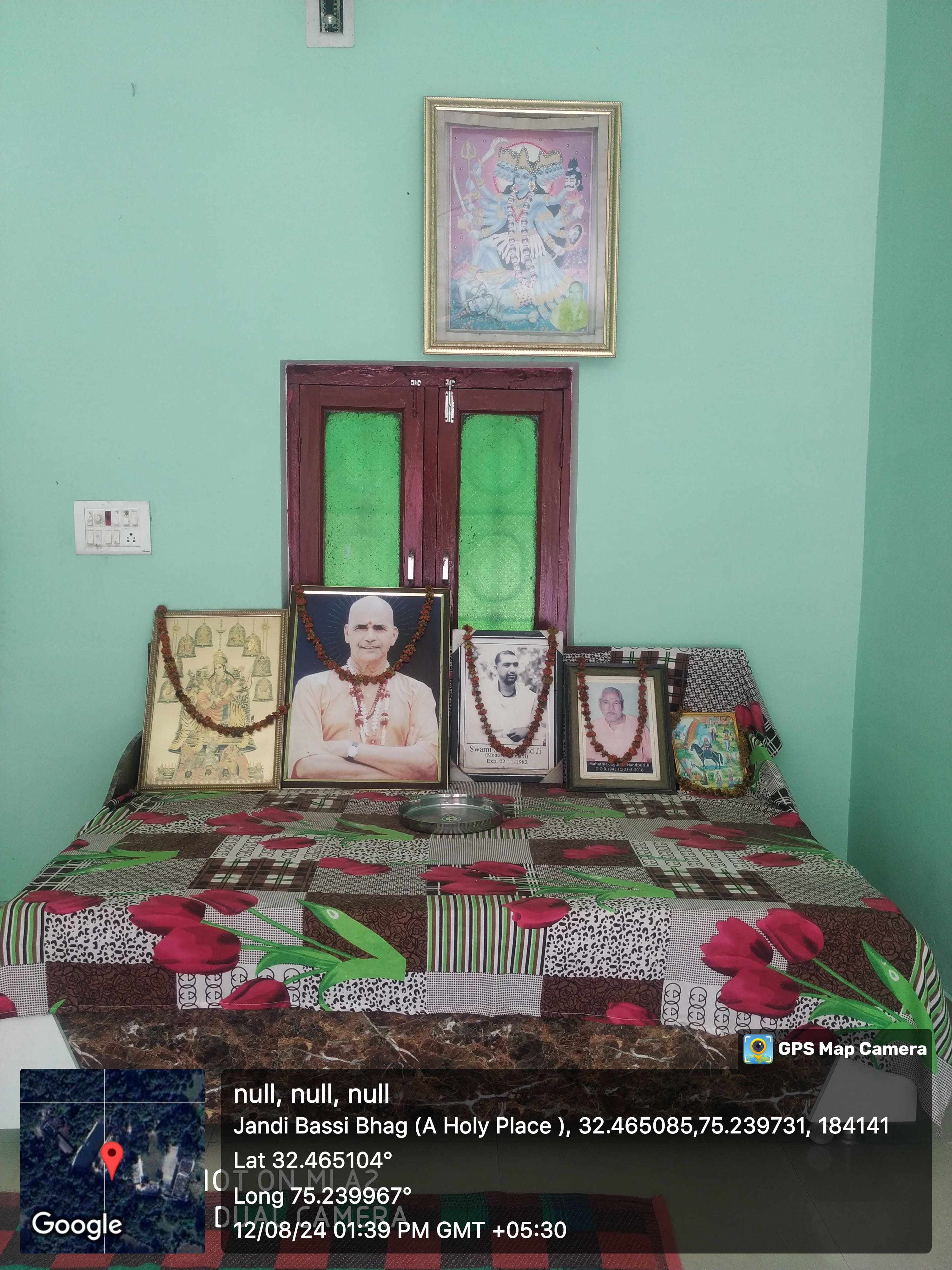
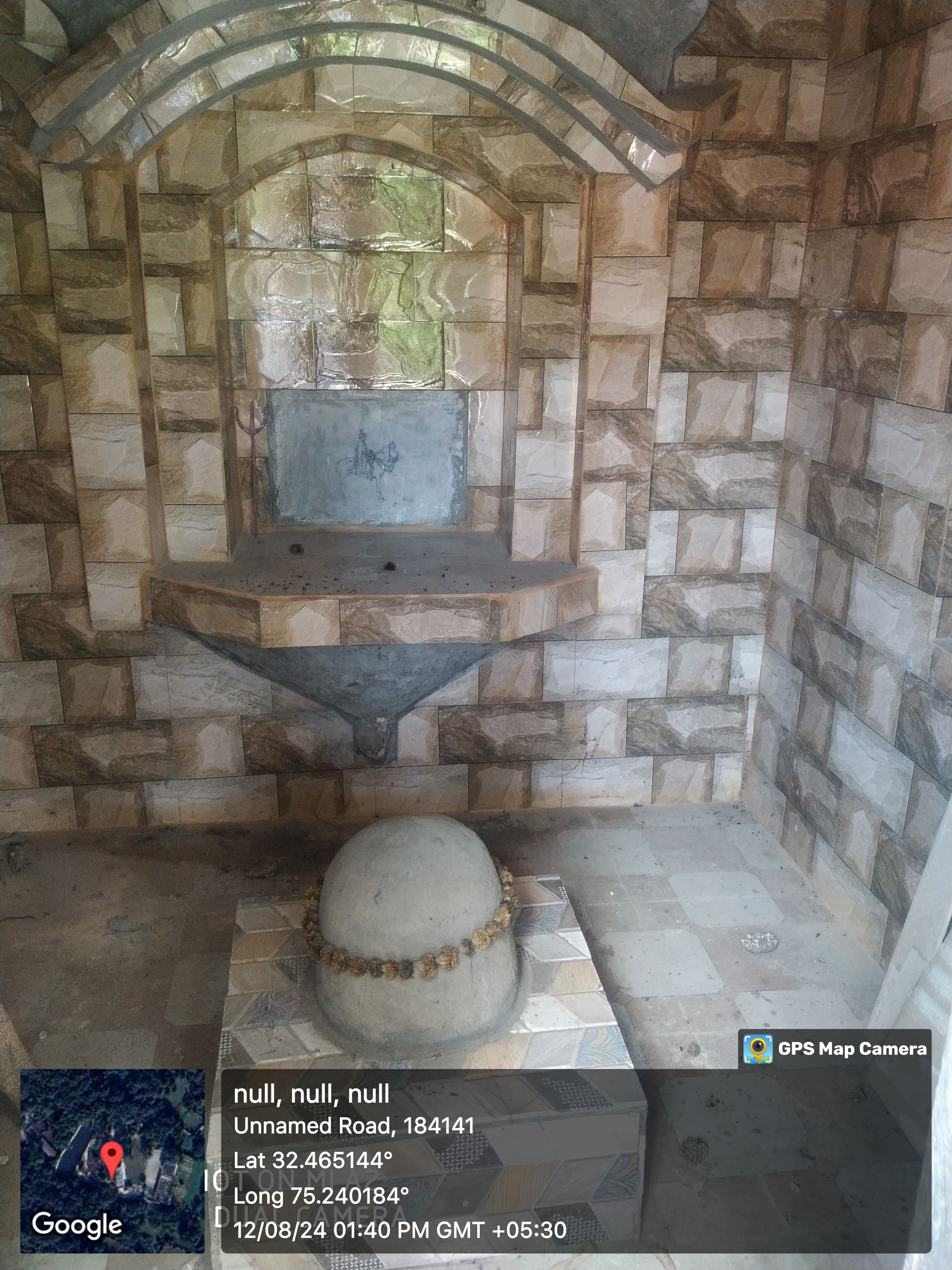
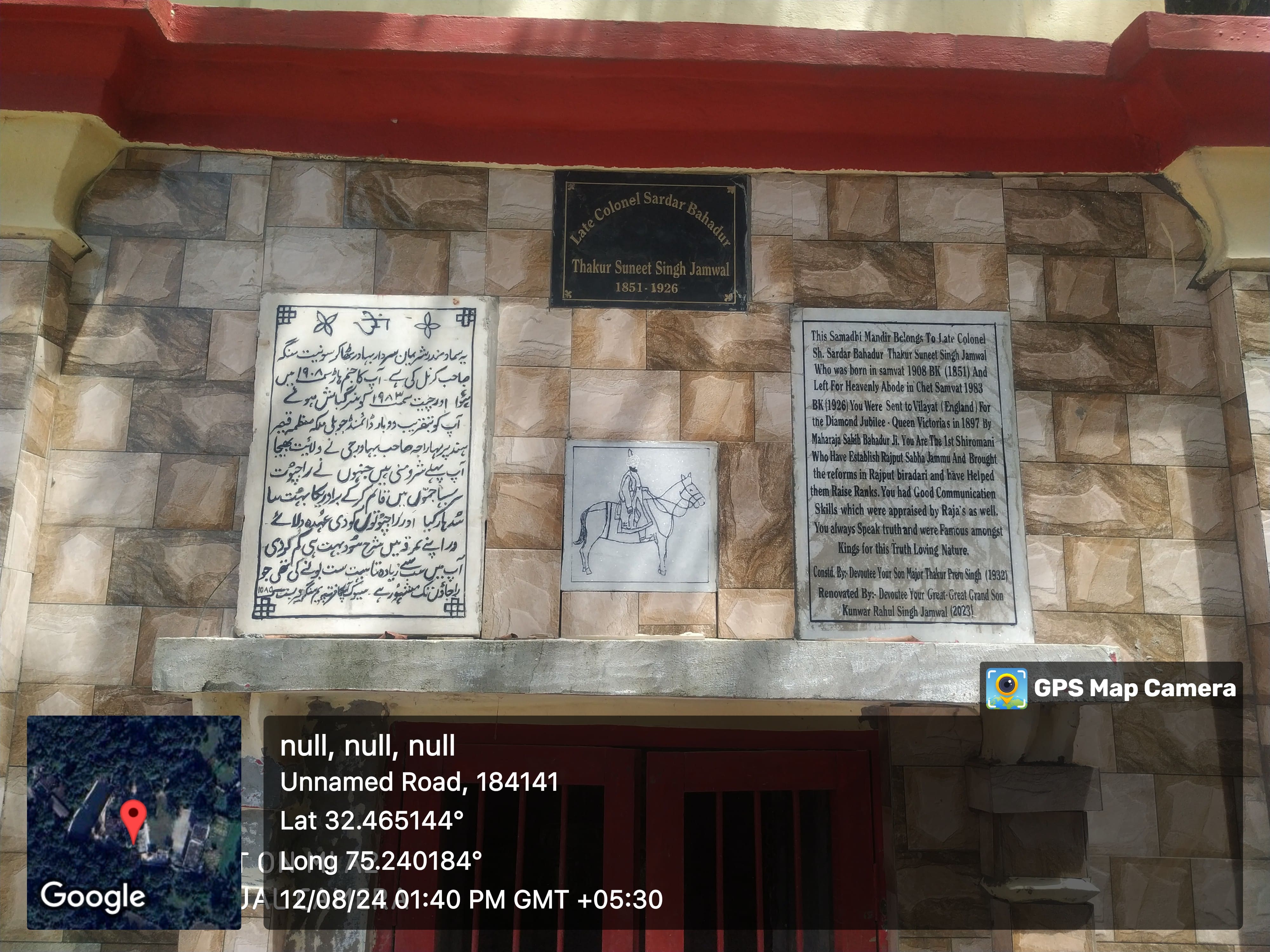
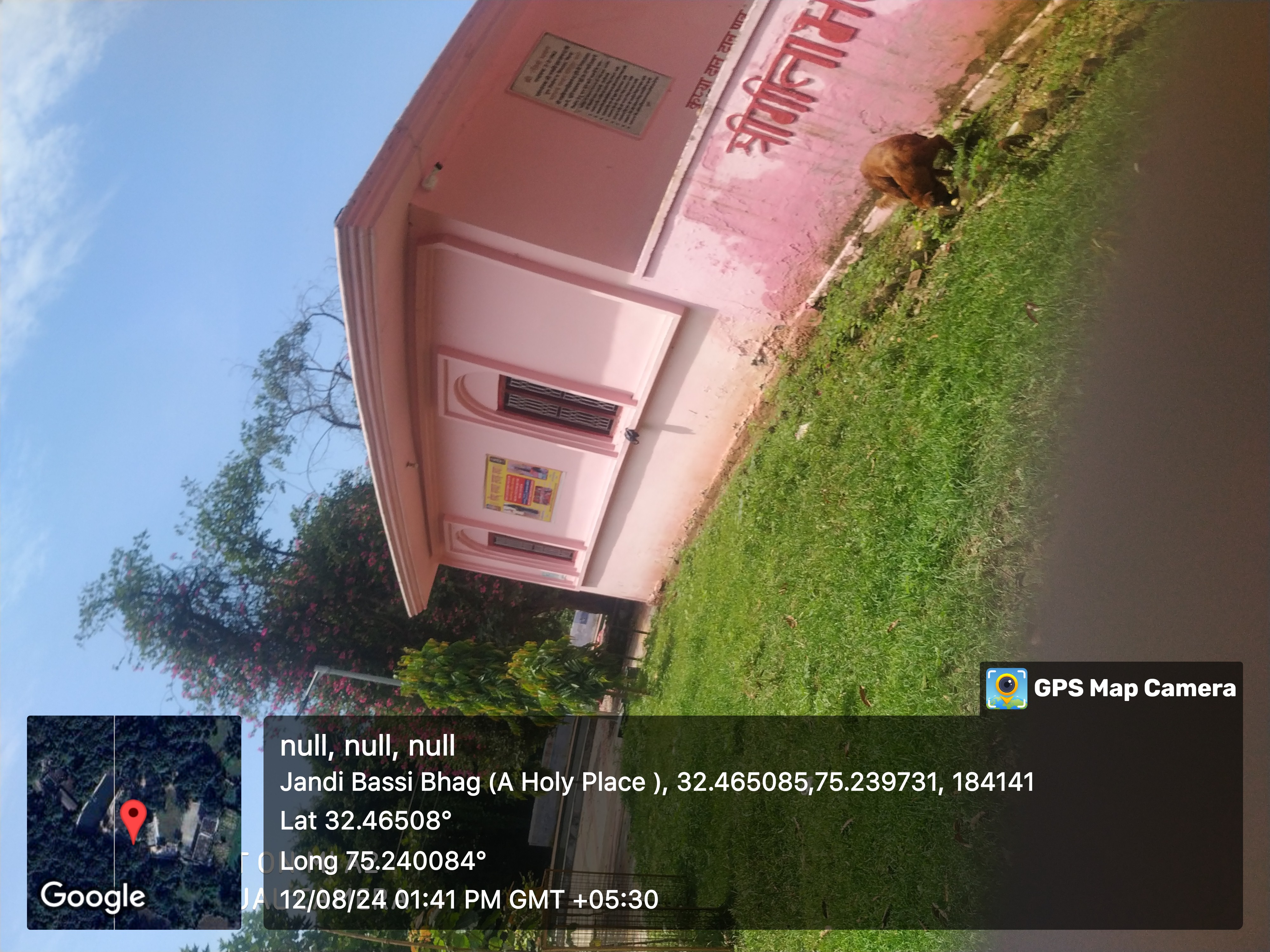
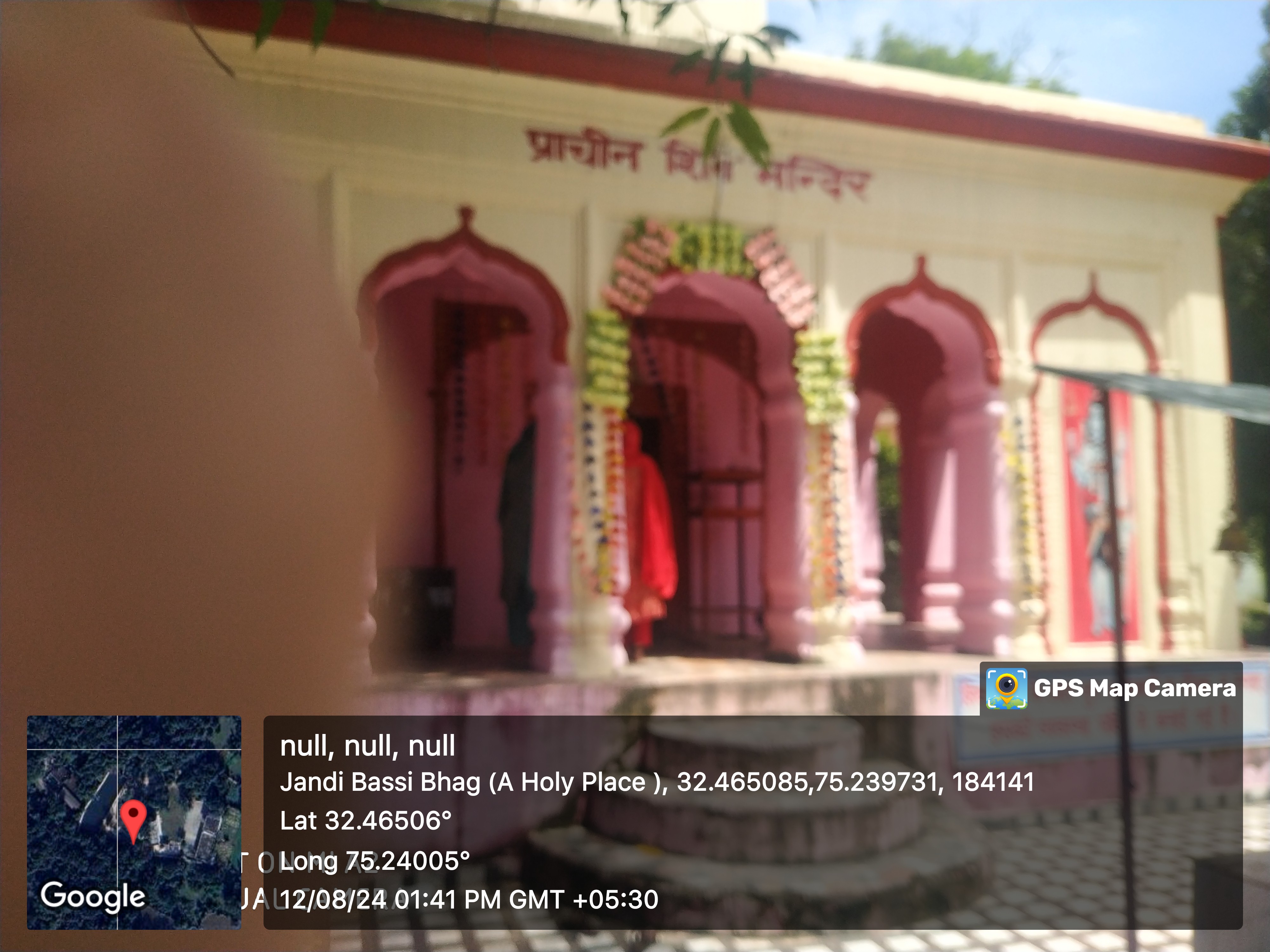
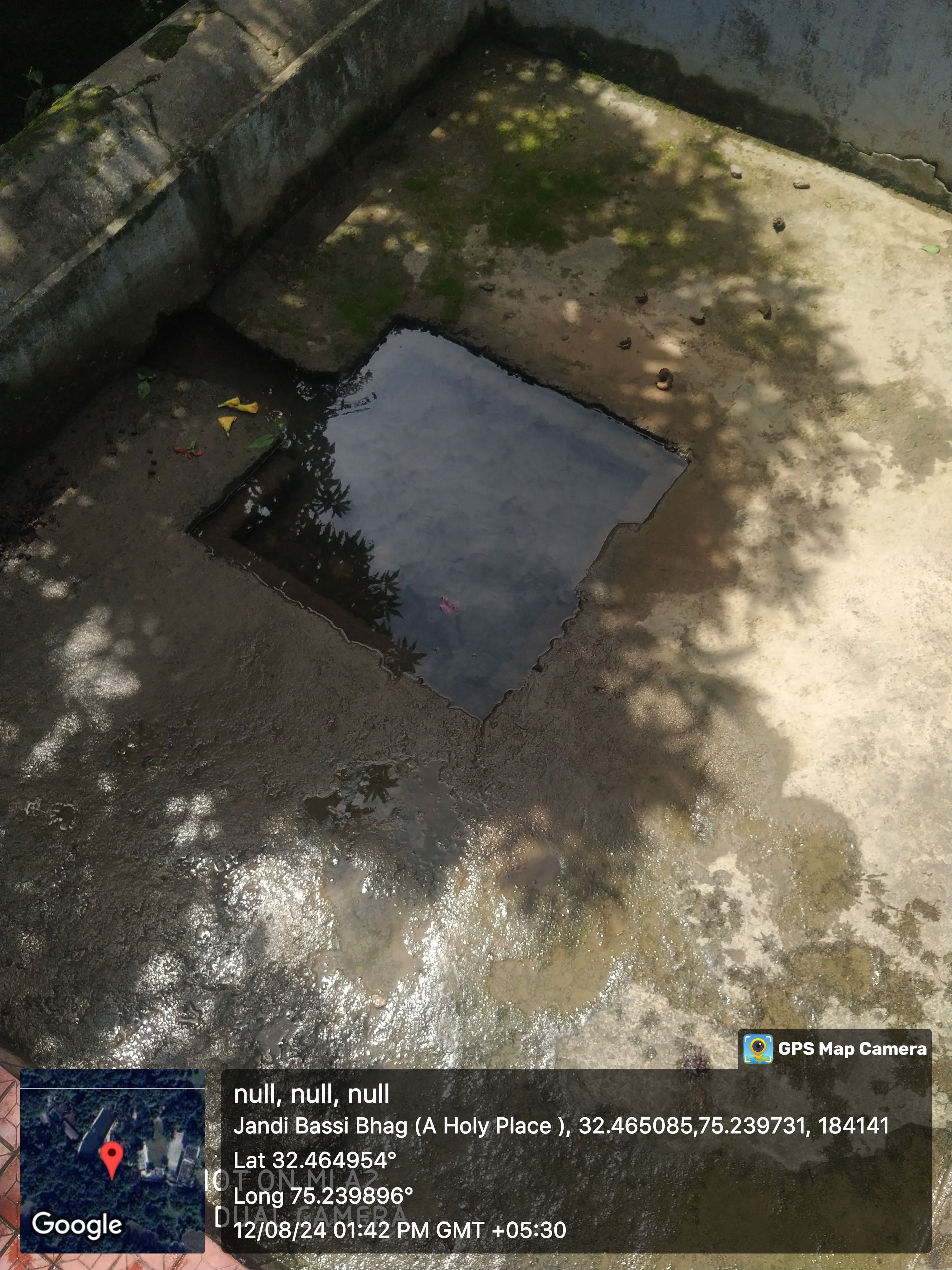
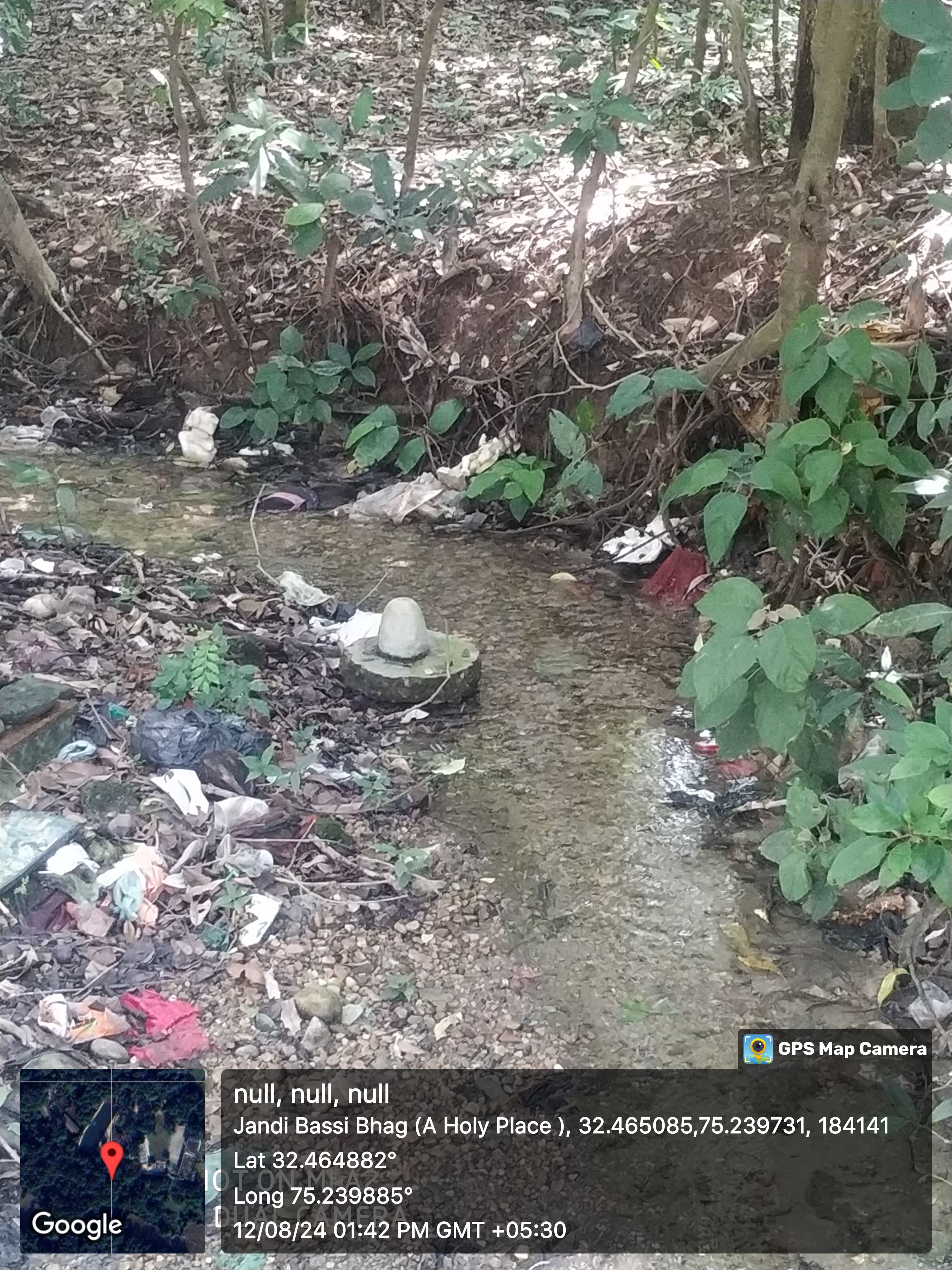

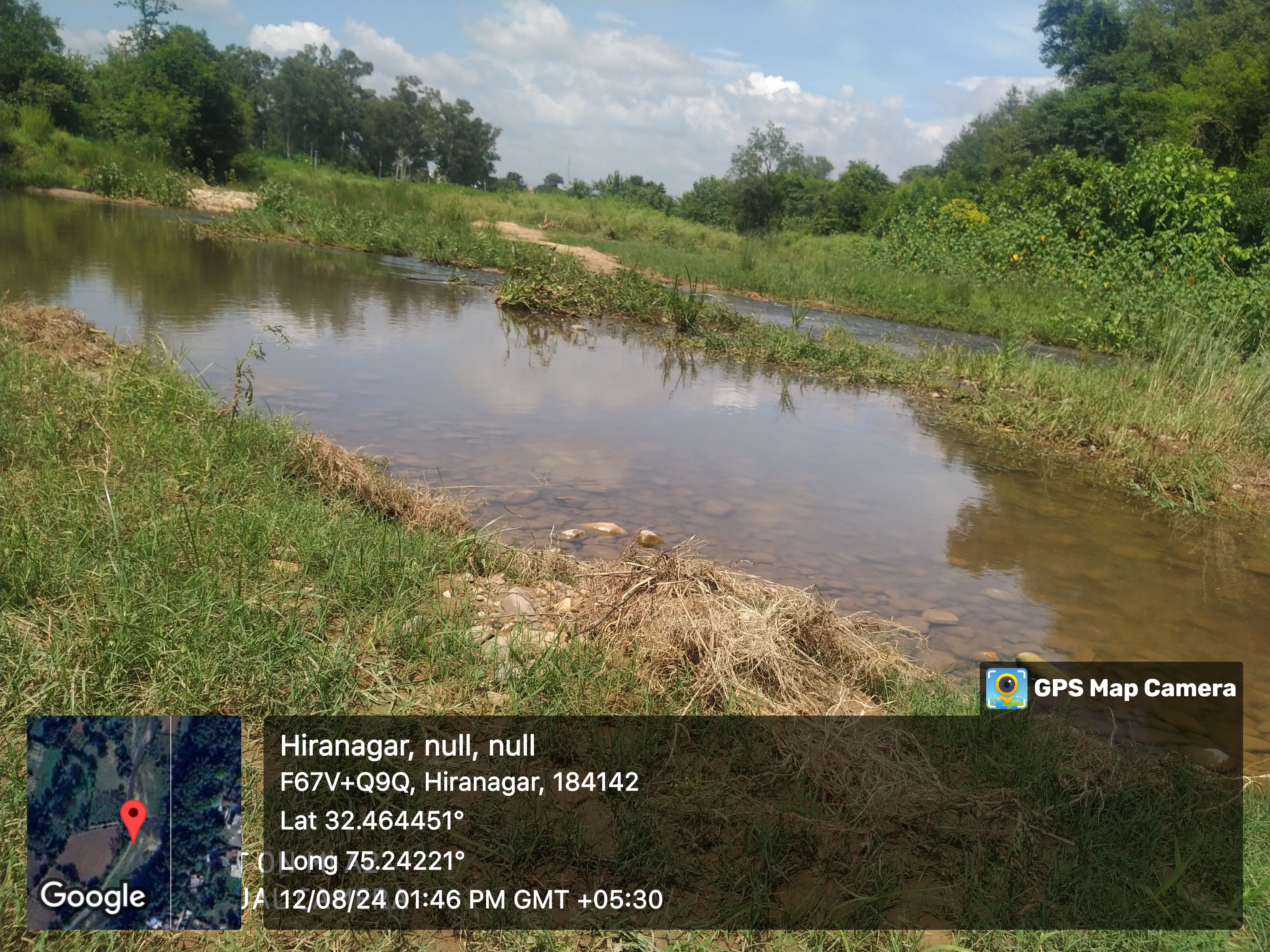

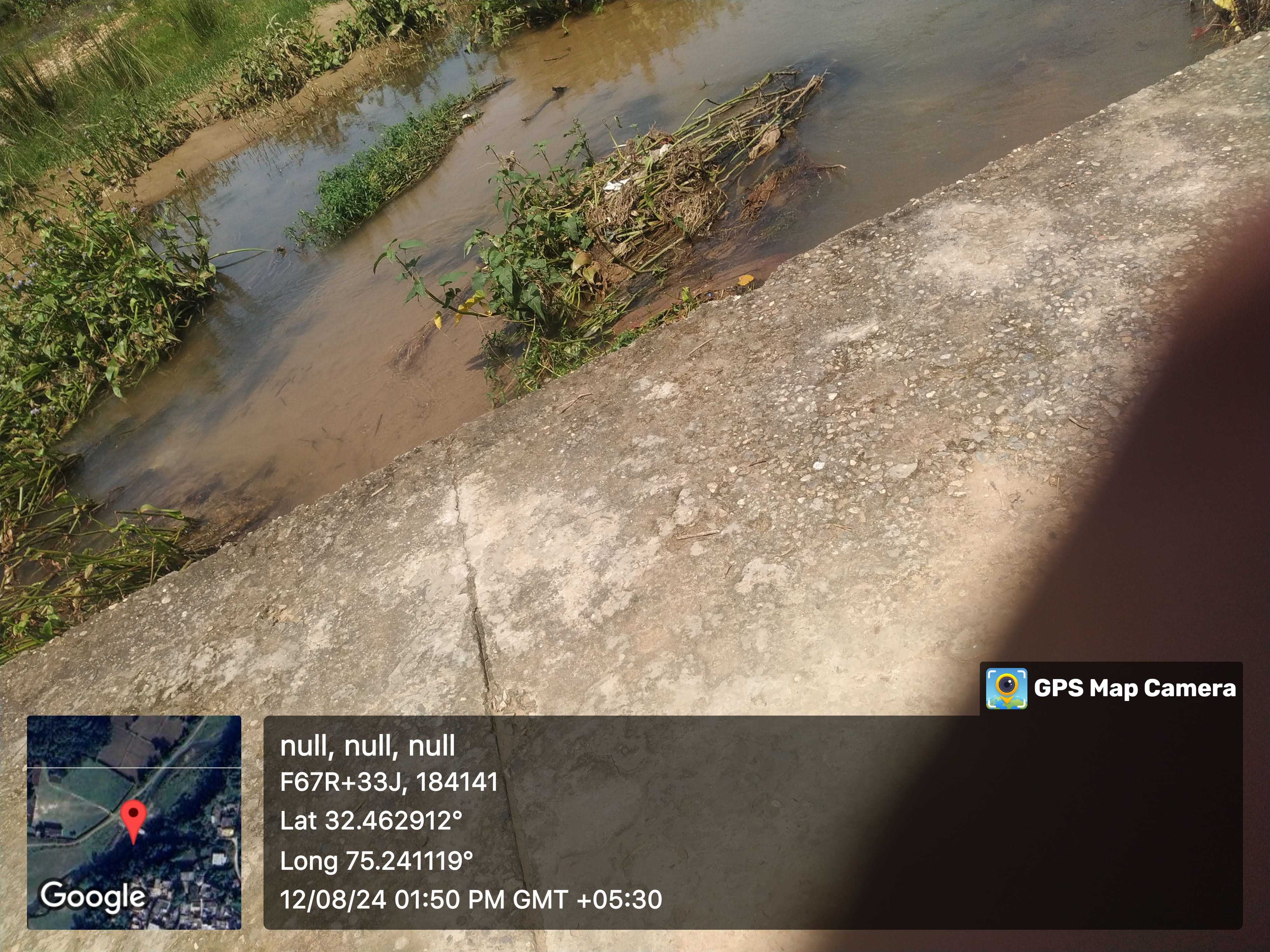
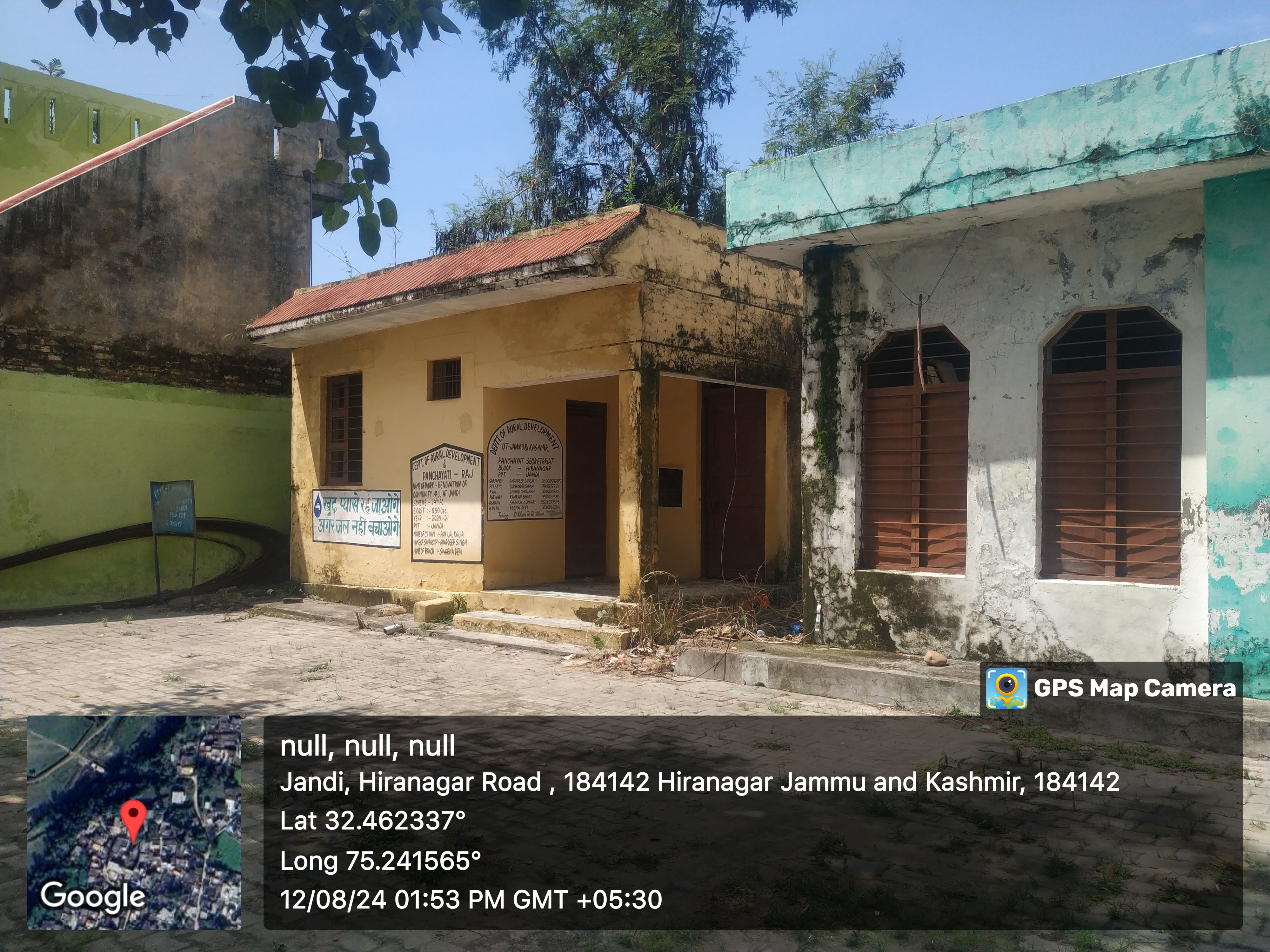
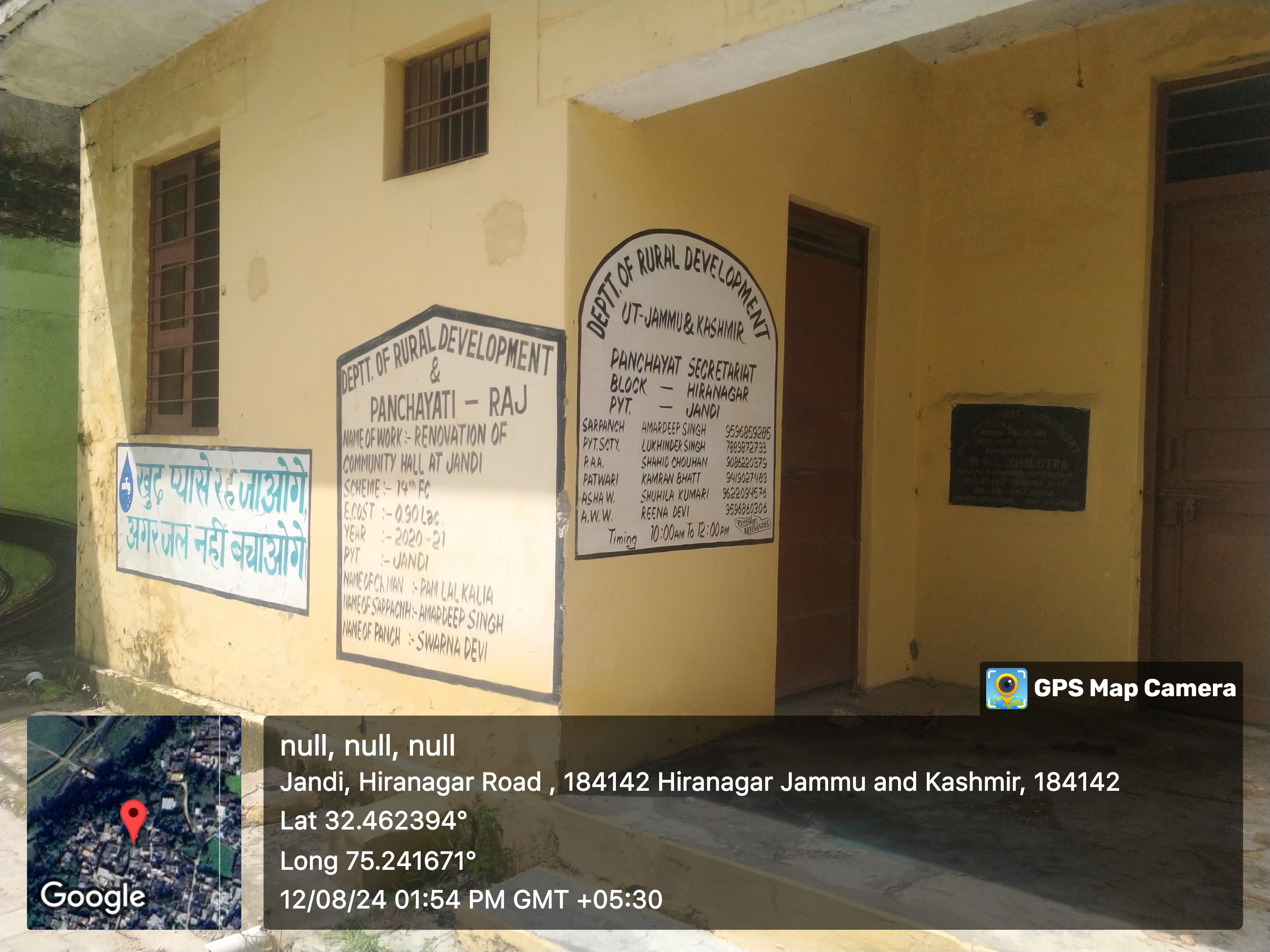

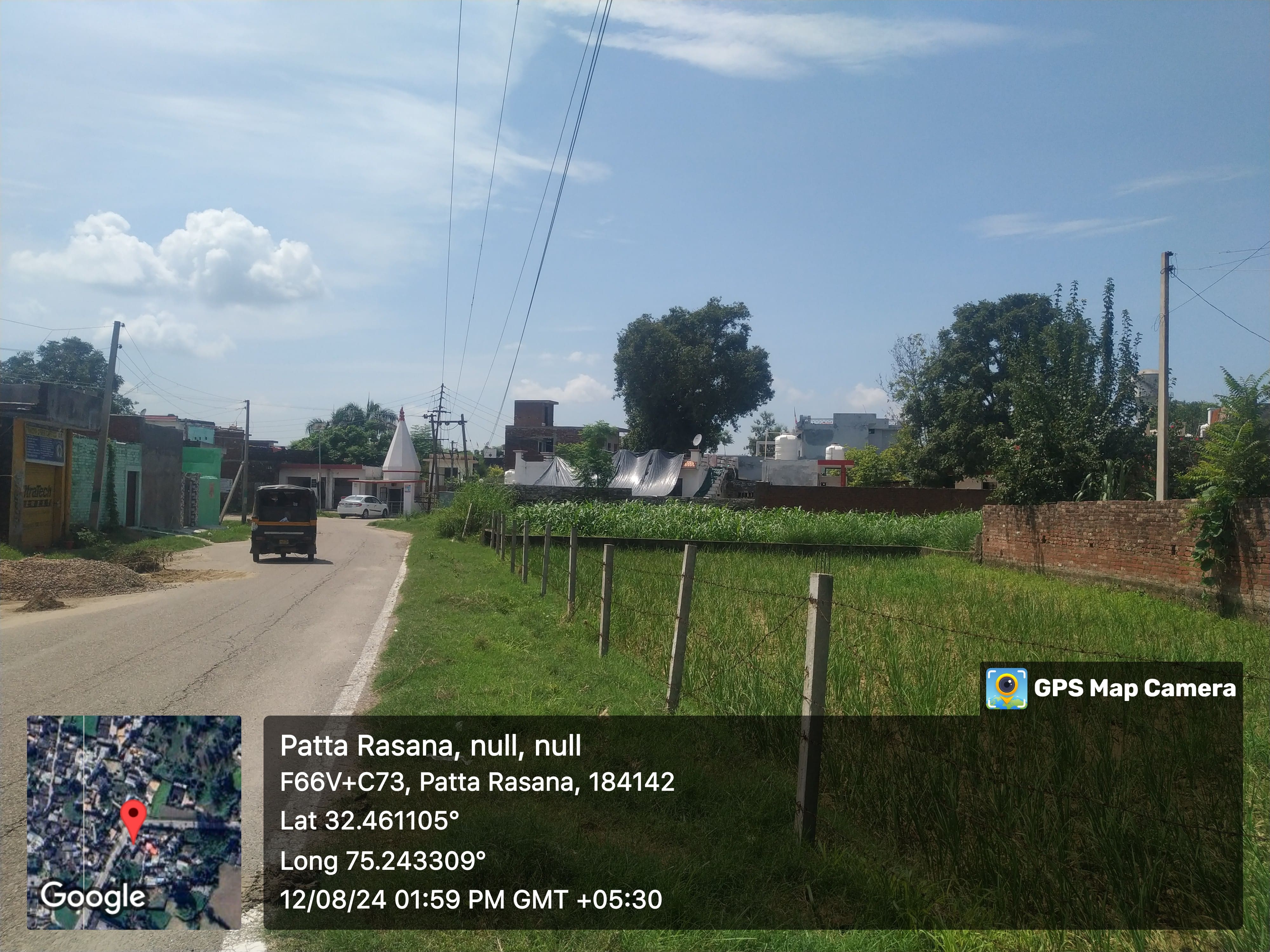
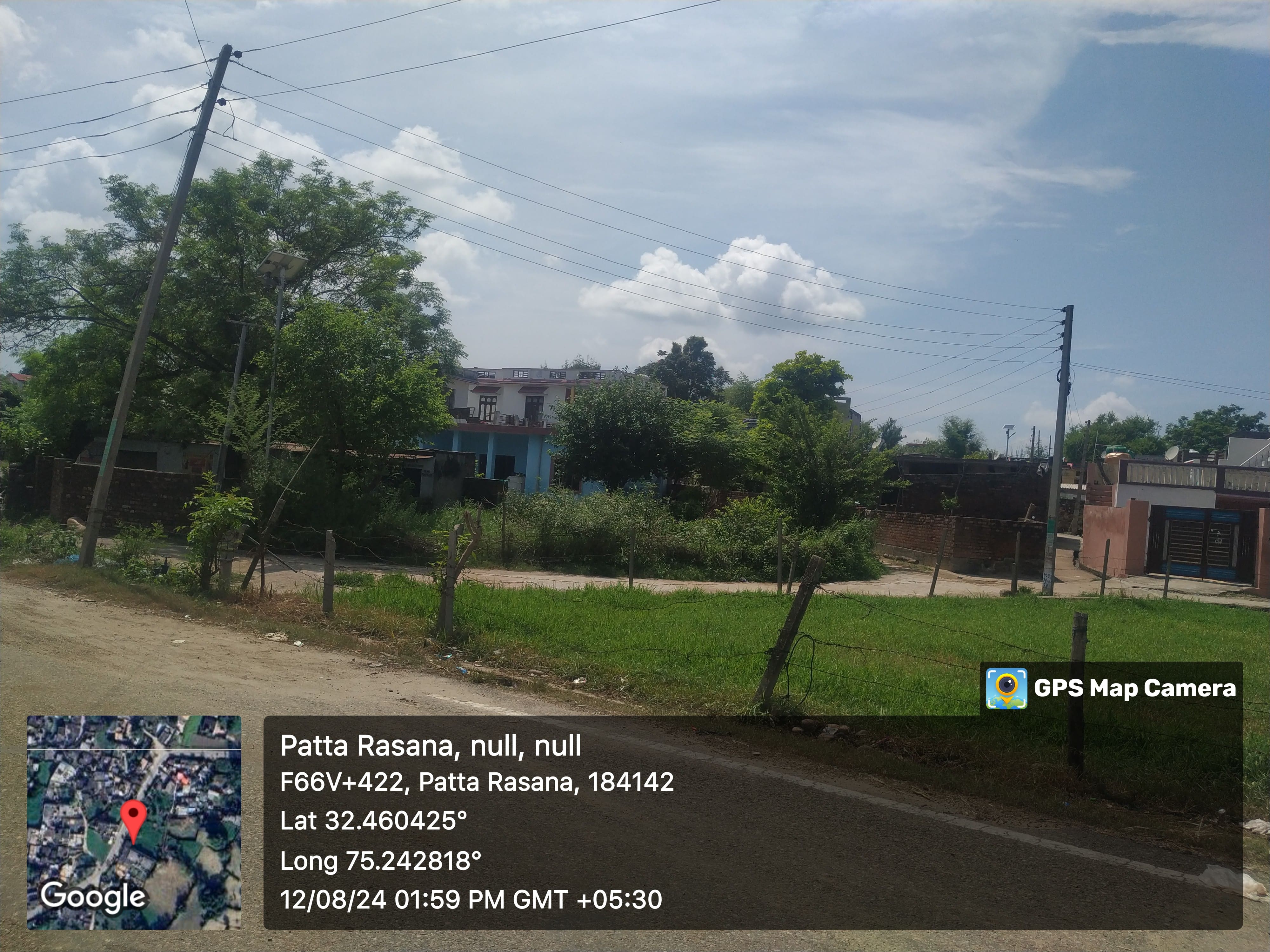
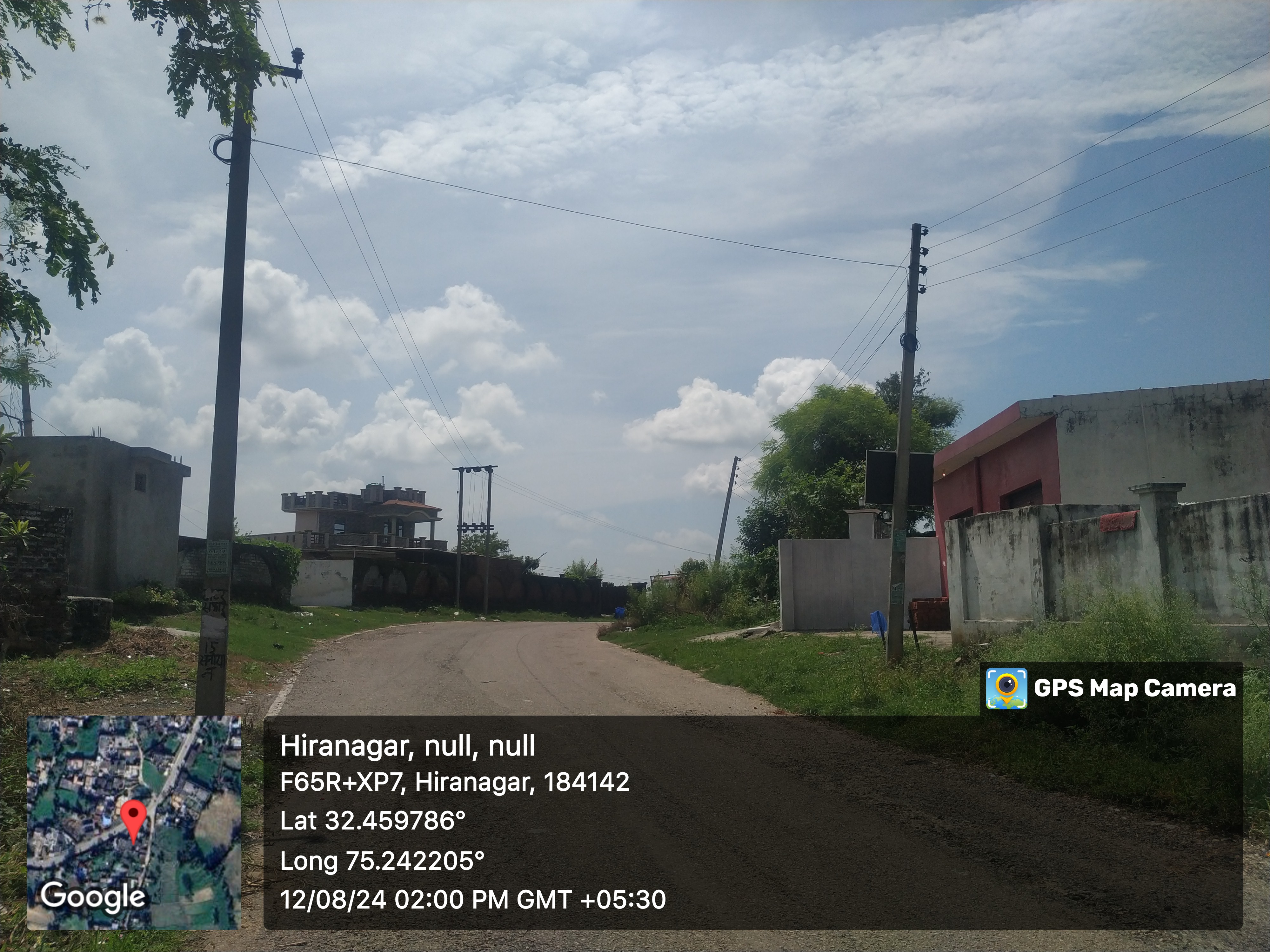
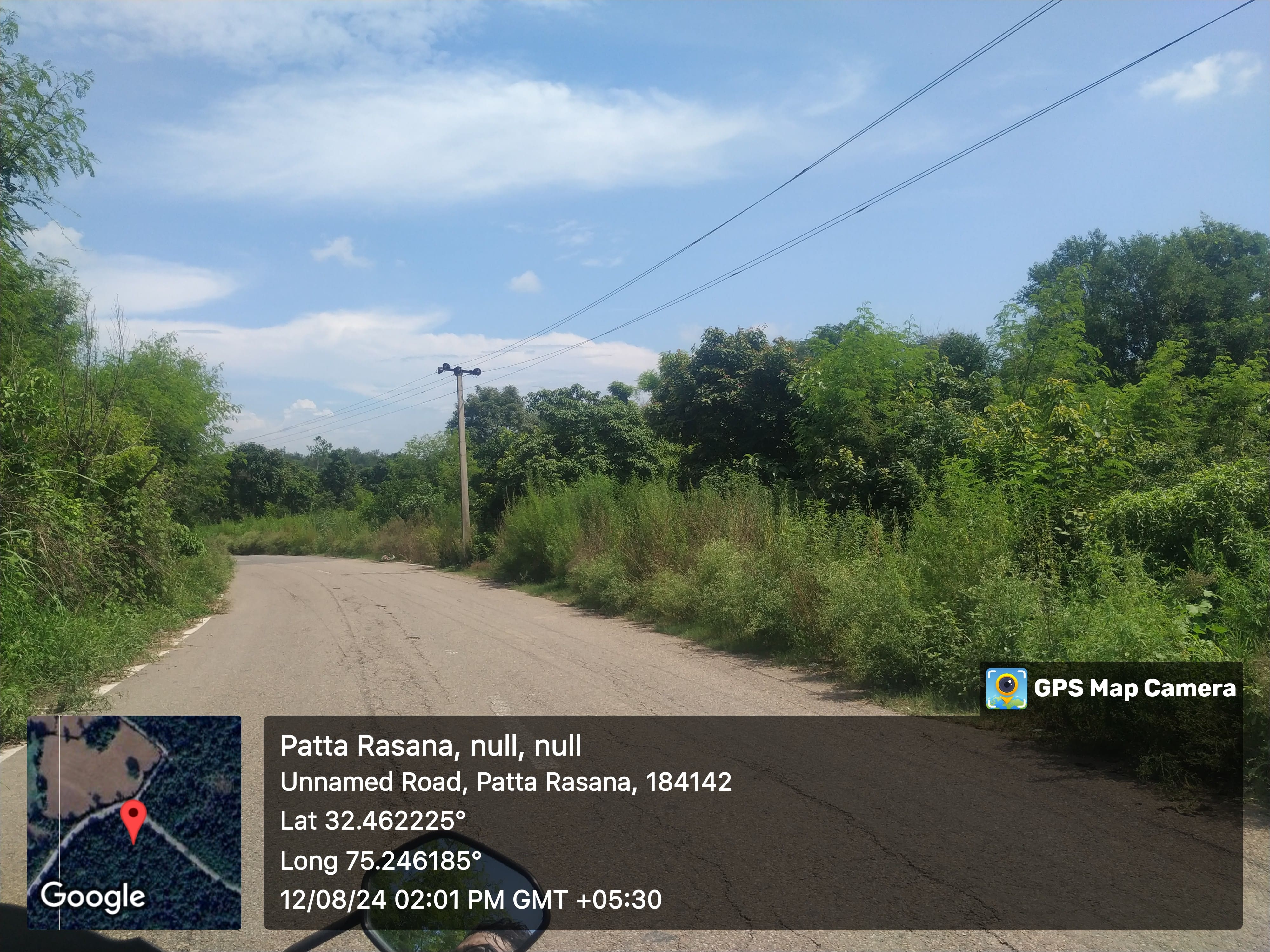
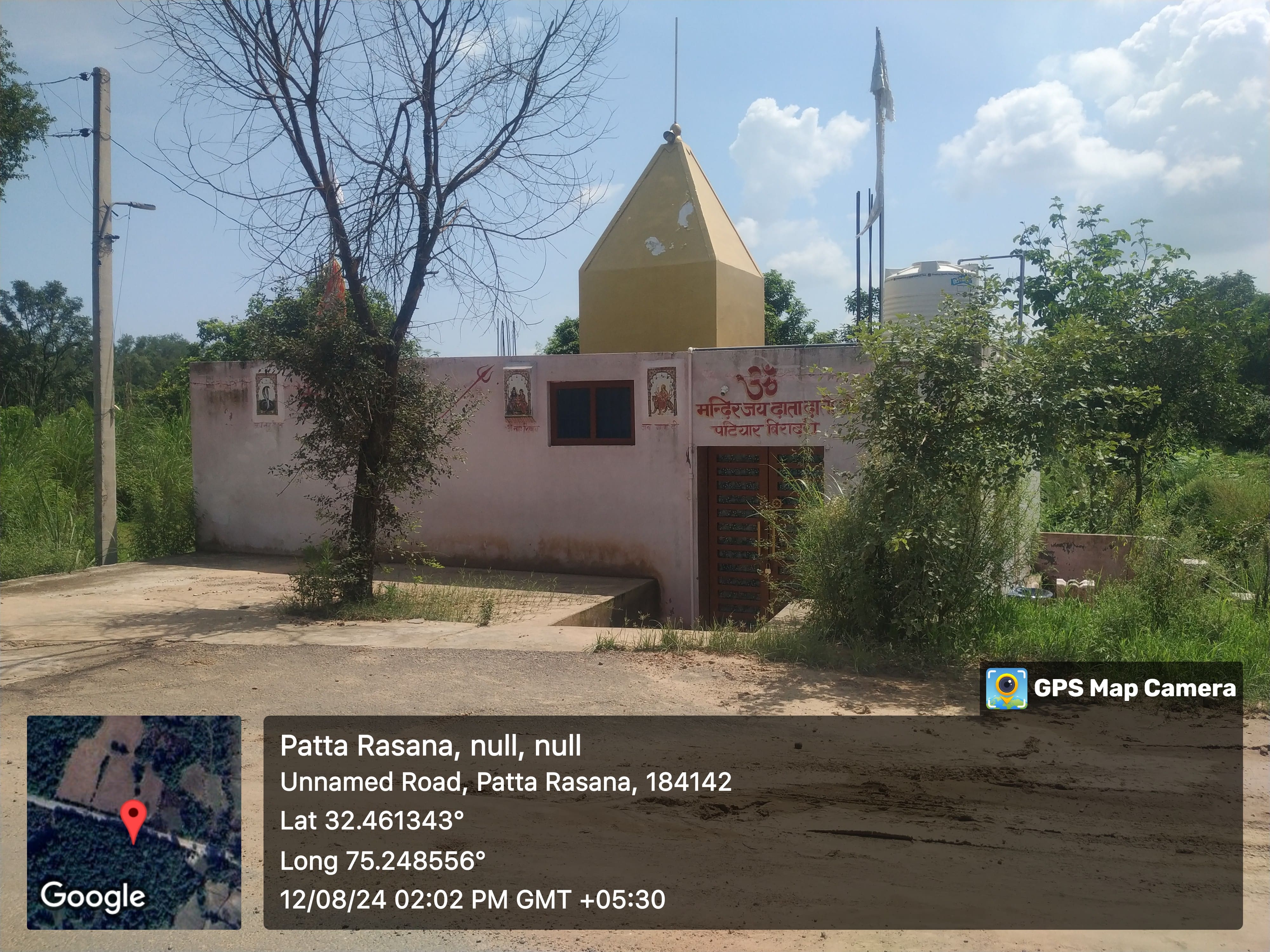
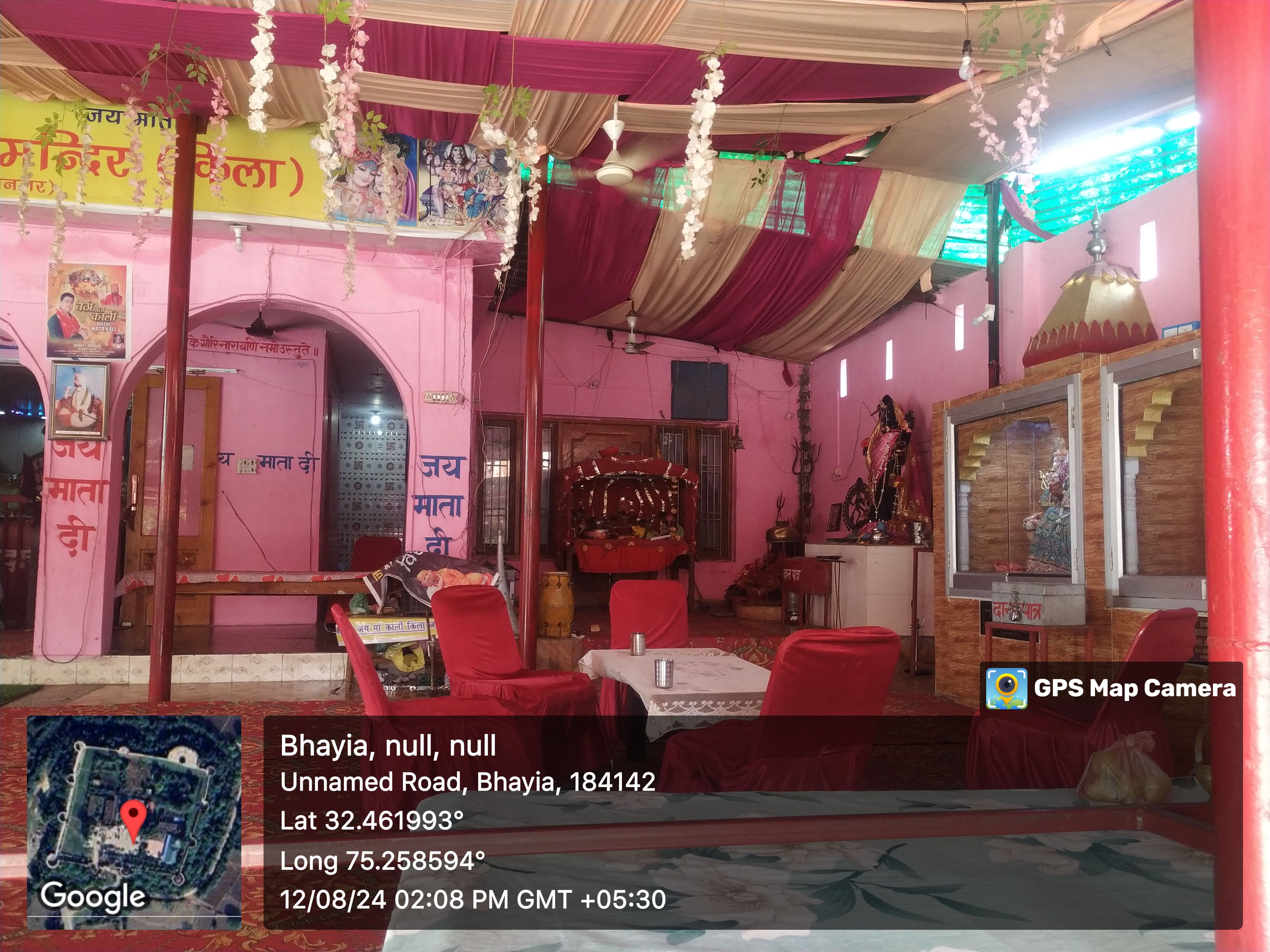
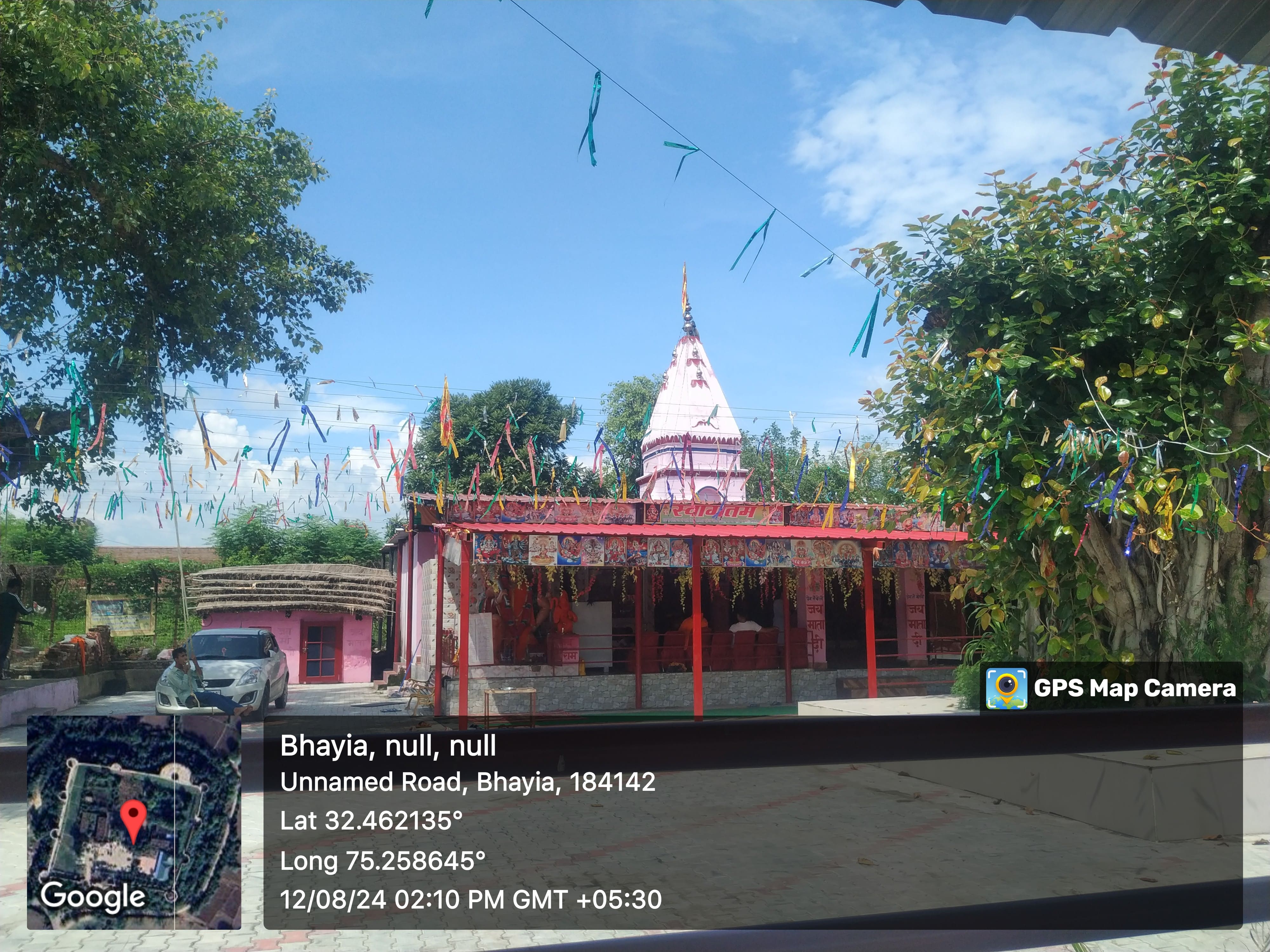

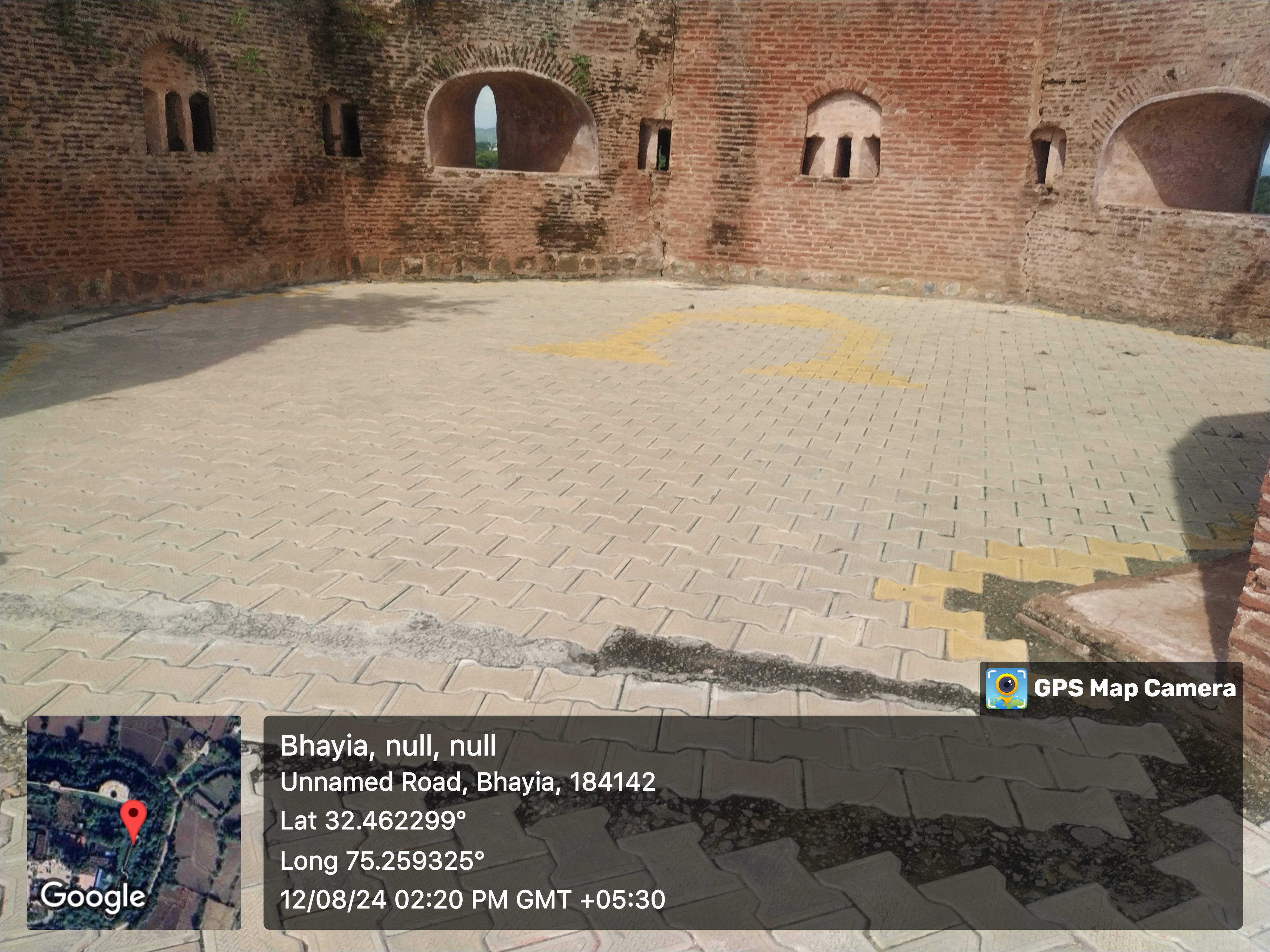




Post videos also (if any)